Meet the Justice & Joy Initiative Members
Alison Cerezo, PhD (they | she) is a health equity researcher, licensed psychologist (CA) and an Associate Professor in the Department of Counseling, Clinical and School Psychology at UC Santa Barbara. Their community-partnered research on intersectional stress, mental health and alcohol/substance use among Latinx, Black and LGBTQ+ communities has been funded by the National Institutes of Health and California Department of Public Health. Alison is also the Lead Strategy Evaluator of California’s $17.5mil LBTQ Health Equity Initiative which aims to improve health services access to sexual minority women, trans and nonbinary Californians.
Amy Reynolds, PhD Amy L. Reynolds is the Department Chair and a Professor in the Department of Counseling, School, and Educational Psychology at the University at Buffalo. Dr. Reynolds received her master’s degree in student personnel work and her doctorate in counseling psychology from Ohio State University and has worked in higher education for over 25 years as both a staff psychologist and professor. Much of her work as a scholar, teacher, and consultant has focused on cultural competence in counseling and using multicultural organization development and liberatory frameworks to create change in academic settings. She has also written on college mental health issues. She has published over 40 journal articles and 20 book chapters and made over 90 juried and invited presentations at regional/national conferences and campuses. She is a co-author for Multicultural Competence in Student Affairs: Advancing Social Justice and Inclusion (2019) and Creating Multicultural Change on Campus (2014) and the sole author of Helping college students: Developing essential skills for student affairs practice (2009). Dr. Reynolds is the Past-President of the Society of Counseling Psychology (Division 17) of the American Psychological Association. In recognition of her contribution to the fields of counseling psychology, she was named a Fellow of the Society of Counseling Psychology (SCP) in 2014 and awarded the Lifetime Commitment to Education and Training Award from the Council of Counseling Psychology Training Programs (CCPTP) in 2020.
Anneliese Singh, PhD, LPC Anneliese Singh, PhD, LPC (she/they) is a Professor and Associate Provost for Diversity and Faculty Development/Chief Diversity Officer at Tulane University. Anneliese's scholarship and community organizing explores racial healing, racial justice, resilience and liberation experiences of QTBIPOC people, as well as NIH-funded work with trans and nonbinary people. They are the author of The Racial Healing Handbook: Practical Activities to Help You Challenge Privilege, Confront Systemic Racism, and Engage in Collective Healing and The Queer and Trans Resilience Workbook. Anneliese is co-founder of the Georgia Safe Schools Coalition and the Trans Resilience Project. You can find Dr. Singh @anneliesesingh on social media and at www.anneliesesingh.com.
Ayşe Çiftçi, PhD Professor Çiftçi is the Director of School of Counseling and Counseling Psychology. Through her leadership positions and scholarship, she has worked to identify critical factors and develop interventions that will help build more inclusive environments particularly for marginalized communities in educational and training settings. Çiftçi is the recipient of the American Psychological Association’s 2014 APA Presidential Citation and an APA fellow in Division 17: Society of Counseling Psychology and Division 52: International Psychology. She spent 16 years at Purdue University as a faculty and administrator before moving to ASU.
Brianna Ladd, BA Brianna Ladd (she/her) is a President's Fellow and doctoral student in Counseling Psychology at the University of Maryland, College Park (UMD). She graduated first-generation from the University of North Carolina at Chapel Hill in 2019 where she earned her B.A. in Psychology and Studio-art. Brianna’s area of research broadly explores how systems of oppression impact the development and well-being of Black and LGBTQ+ adolescents and emerging adults. Specifically, Brianna uses qualitative and quantitative methodologies to elucidate the unique experiences specific to Black girls and young women, including addressing how subtle forms of everyday racism, sexism, and heterosexism (i.e., intersectional microaggressions) impact health and well-being. Brianna was recently selected to participate in the Health Policy Research Scholars Program sponsored by the Robert Wood Johnson Foundation where she will be applying her research to policies that advance health equity.
Bryana French, PhD, LP Bryana H. French, PhD, LP, is an Associate Professor in the Graduate School of Professional Psychology at the University of St. Thomas. Her research, teaching, and pracitce focuses on racial and sexual trauma and recovery, specifically among Black, Indigenous and People of Color. Her first authored article with the Psychology of Radical Healing Collective, “Toward a psychological framework for radical healing in Communities of Color” is ranked in the top 5% on Altmetrics publication data. Her research on men’s sexual victimization has been featured in several news outlets including Time, US News, and Huffington Post. Dr. French’s work has been recognized with awards throughout her career, including the American Psychological Association, the National Multicultural Conference and Summit, the Minnesota Psychological Association, and the Association of Black Psychologists.
Cecile Gadson, PhD Dr. Gadson, is a staff psychologist and African American/Black student specialist at the University of Oregon’s counseling services (University Health Services). She completed her postdoctoral fellowship as a multicultural emphasis fellow at the University of Kansas Medical Center’s counseling and educational support services. She earned her doctoral degree in counseling psychology at the University of Tennessee and completed her pre-doctoral internship at Florida International University’s CAPS. Her primary clinical interests include trauma, discrimination-based stress, depression, family concerns, women’s wellness, mindfulness, religion/spirituality concerns, and multicultural/Black psychology. She is a certified Sawubona healing circle trainer and facilitator. She is also trained in soulfulness mindfulness, a BIPOC (Black Indigenous People of Color) focused mediation under the scholarship of Dr. Shelly Harrell. As a scholar, she researches the gendered racial microaggression experiences of Black girls. Given her training from a Scientist-Practitioner-Advocate model, she believes it is important to not only integrate multiculturally competent research, clinical practice, and social justice advocacy for her clients in the therapy room, but also advocate for social issues that impact clients outside the therapy room. She finds justice and joy in creating and co-creating protected and empowering healing spaces for Black folx. She is a proud McNair scholar, an active member in Delta Sigma Theta Sorority, Inc., the Association of Black Psychologists, and APA’s division seventeen. Cherese Waight, M.S. I am a fourth-year doctoral student in Educational Psychology the Counseling Psychology Division. Before starting the Counseling Psychology program at the University of Illinois, I graduated from University of Illinois with a B.S. in Psychology and African American Studies. I am a McNair Alumni and a previous Graduate Assistant and Mentor for the McNair Scholars program in the Office of Minority Student Affairs, provided support for students in underrepresented and low-income communities that want to pursue a PhD degree. I am also a Teaching Assistant for EPSY 202: Exploring Cultural Diversity, a course focusing looking at topics through a social justice lens. I’m broadly focused on understanding the psychological effects of racism in the Black community, which is inclusive to understanding racial ideology, well-being, radical healing, radical hope, intergenerational trauma & coping, mental health resources for underrepresented communities and community interventions. My masters thesis research was focused on understanding the experiences of Black police officers. In the future interested in doing work around radical hope and Black mothers. I am passionate about social justice and advocacy in my training. I am working under the direction of Dr. Helen Neville in her Liberation Lab. In my free time, I enjoy spending time with my daughter, family, binge watching shows, cooking, being outdoors and spending time with friends.
C.J. Park, PhD Dr. Chan Jeong “CJ” Park is an Assistant Professor in the Department of Educational & Counseling Psychology, and Special Education at the University of British Columbia and a licensed psychologist. Dr. Park is a counseling psychologist with an international background. Born and raised in South Korea, she received her bachelor’s degree in Psychology from the University of Hong Kong. Upon returning to South Korea, she attended master’s program in Counseling Psychology at Ewha Womans University. She attained license in counseling and practiced as a professional counselor until she moved to the U.S. to attend the University of Missouri, where she graduated with a PhD in Counseling Psychology in 2021. Her research interests include multicultural issues in vocational psychology, career development of marginalized populations, critical consciousness, international and cross-cultural psychology, and intervention studies.
David Blustein, PhD David L. Blustein is a Professor and Golden Eagle Faculty Fellow in the Department of Counseling, Developmental, and Educational Psychology at Boston College. David is the author of The Psychology of Working: A New Perspective for Career Development, Counseling, and Public Policy, The Importance of Work in an Age of Uncertainty, and the co-editor of Rethinking Work. He has been instrumental in developing psychology of working theory, which is an inclusive and social justice-informed perspective of work. In addition, David has focused on unemployment, work-based interventions, decent work, interface of work and mental health, and relationships and work. He also has consulted with the International Labor Organization, OECD, and the United Nations Development Program.
David Stanley, PhD David C. Stanley Jr., PhD is an Assistant Professor in the Counseling Psychology program at Purdue University. His research is focused on mentoring and resilience in underrepresented groups. More broadly, his research interests include qualitative methodologies, racial/ethnic minority mental health, and multicultural issues (diversity, equity, inclusion, social justice, and advocacy). Dr. Stanley is dedicated to pushing the field of psychology forward through research, training, practice, and advocacy regarding efforts related to resistance with a focus on dismantling anti-Black racism, engaging in reconciliatory actions within the broader racial minority community, and creating solidarity support groups for individuals actively engaged in resistance-related work.
Déja Fitzgerald, M.Ed. As someone who identifies as Black, indigenous, and queer; Déja Fitzgerald, M.Ed. (she/they) has dedicated herself to the pursuit of equity and liberation. Déja is an equity professional and researcher who has worked with academic institutions, non-profits, state human service departments, and community groups in a variety of professional capacities ranging from executive leadership to consulting. Currently, Déja is pursuing her doctoral education in the Counseling Psychology doctoral program at the University of Tennessee. Originally from North Carolina, she completed her Bachelor of Science at Appalachian State University and her Master of Education in Student Affairs Administration at the University of North Carolina at Greensboro. Déja’s current work explores hip-hop therapy, health policy advocacy, organizational development, and healthcare experiences for BIPOC and LGBTQ+ communities. Her work explores these concepts in a variety of settings: organizations, community groups, couples, and intrapersonally. Outside of classes and research, you can find Déja playing video games, hanging out with one of her many pets, passionately commenting on decor decisions while watching HGTV with her wife, or making music either on stage or in the studio. If you would like to connect with Déja, you can contact her directly at: [email protected].
Della Mosley, PhD Dr. Della V. Mosley (they/them or she/her) is a healer, scholar-activist, and spacemaker who uses Black feminist approaches to facilitate holistic wellness for people of the global majority, particularly Black people and all queer and transgender People of Color. Dr. Della has a PhD in Counseling Psychology, is the president of The WELLS Healing Center non-profit, and co-founded The Radical Healing Collaborative, a mental health group practice in Durham, NC. Dr. Della has published over 30 peer-reviewed articles and book chapters centered on wellness and liberation. They also recently gave a TEDx talk entitled “Moving from Woke to Working for Black Futures." Connect with them on Instagram @dvmosley or by visiting www.DellaVMosley.com.
Derald Wing Sue, PhD Derald Wing Sue is Professor of Psychology and Education in the Department of Counseling and Clinical Psychology at Teachers College, Columbia University. He was the co-founder of the National Multicultural Conference and Summit, co-founder and first President of the Asian American Psychological Association, past presidents of the Society for the Psychological Study of Culture, Ethnicity and Race, and the Society of Counseling Psychology. Derald has served as Editor or Associate Editor of many professional journals, including the American Psychologist, Asian American Journal of Psychology, The Counseling Psychologist, and the Personnel and Guidance Journal. Derald is a pioneer in the field of multicultural psychology, microaggression theory, racial dialogues, multicultural counseling and therapy, and the psychology of racism/antiracism. He is author of 23 books and nearly 200 scholarly publications. His services have been widely sought by many groups and organizations. He has also done extensive cultural diversity training for many Fortune 500 companies, institutions of higher education, governmental agencies, public schools, and mental health organizations. His current research and work focuses on “microintervention strategies to disarm and dismantle racism and bias. His most recent book Microintervention Strategies: How you can disarm and dismantle individual and systemic racism and bias (2021) outlines specific individual actions that can be taken by targets, allies and bystanders to counteract bias and discrimination.
Elana Hubert, M.A. Elana Hubert (she/they) is a 4th year doctoral candidate in Counseling Psychology at UCSB, working with Dr. Melissa Morgan and Dr. Heidi Zetzer. Her research and clinical interests have focused on themes related to cultural identity, intersectionality, and intergenerational trauma, and their relationship to social justice advocacy and inter-group solidarity activism. Elana has experience using qualitative, mixed-methods, and community-based participatory research methods. She also has experience utilizing participatory and arts-based methodologies in the context of public health programming and community organizing.
Francisco Sanchez, PhD Francisco (Cisco) Sánchez is an Associate Professor and the Director of Undergraduate Training in the School of Counseling and Counseling Psychology. He earned his bachelor’s degree from Texas A&M University and his doctorate from The University of Iowa. His research interests include the biopsychological basis of sexual orientation and gender identity and the effects of gender norms on people’s well-being. Dr. Sánchez is actively engaged in the profession. He currently serves on the APA Board of Convention Affairs, the APA Task Force on DSD/VSTs, and the APA Amicus Curiae Expert Panel. He also serves on the editorial board of four top journals in the field: Archives of Sexual Behavior, Clinical Psychology: Science & Practice, Journal of Counseling Psychology, and Psychology of Men & Masculinities
Gholnecsar Muhammad, PhD Dr. Gholnecsar (Gholdy) Muhammad is an Associate Professor of Literacy, Language, and Culture at the University of Illinois at Chicago. She has previously served as a classroom teacher, literacy specialist, school district administrator, curriculum director, and school board president. She studies Black historical excellence in education, intending to reframe curriculum and instruction today. Dr. Muhammad’s scholarship has appeared in leading academic journals and books. She has also received numerous national awards and is the author of the best-selling book, Cultivating Genius: An Equity Model for Culturally and Historically Responsive Literacy. She also co-authored Black girls’ literacies: An Edited Volume. Her Culturally and Historically Responsive Education Model has been adopted across thousands of U.S. schools and districts across Canada. In 2022 and 2023, she was named among the top 1% Edu-Scholar Public Influencers due to her impact on policy and practice. She has also received numerous awards from national organizations and universities. She was named the American Educational Research Association Division K Early Career Award and the 2021 NCTE Outstanding Elementary Educator in the English Language Arts. She has led a federal grant with the United States Department of Education to study culturally and historically responsive literacy in STEM classrooms. Her newest book, Unearthing Joy, is the sequel to Cultivating Genius and provides a practical guide for putting culturally and historically responsive education into curricular practice.
Hector Adames, PsyD Dr. Hector Y. Adames (he, him, el), received his doctorate in Clinical Psychology from the APA-accredited program at Wright State University in Ohio and completed his APA predoctoral internship at Boston University School of Medicine. By training, he is a neuropsychologist and currently a Full Professor at The Chicago School of Professional Psychology Chicago, where he co-founded and co-directs the IC-RACE Lab. Among his many publications, Dr. Adames has authored six books and co-developed several therapeutic frameworks for Black, Indigenous, and other People of Color, including HEART (Healing Ethno And Racial Trauma) and Keeping Radical Healing in Mind Therapeutic Approach. You can follow Dr. Adames on Twitter, Instagram, Threads, and Spoutible, or visit his lab at www.icrace.org.
Helen Neville, PhD Helen A. Neville received her doctorate in counseling psychology from the University of California at Santa Barbara. She was on the faculty in Psychology, Educational and Counseling Psychology, and Black Studies at the University of Missouri-Columbia where she co-founded and co-directed the Center for Multicultural Research, Training, and Consultation. Currently, Dr. Neville is a professor of Educational Psychology and African American Studies at the University of Illinois at Urbana-Champaign. She is president of the Society of Counseling Psychology (APA Division 17), past president of the Society for the Psychological Study of Culture, Ethnicity and Race (APA Division 45) and a fellow of the American Psychological Association. She is active in the Association of Black Psychologists, having served on their Board of Directors and receiving their Distinguished Psychologist award. She has (co)authored/edited 8 books and over 100 articles on topics related to race, racism, racial identity, and healing. Dr. Neville has been recognized for her research and mentoring efforts including receiving the APA Graduate Students Kenneth and Mamie Clark Award, the APA Division 45 Charles and Shirley Thomas Award for mentoring/contributions to African American students/community, and the Winter Roundtable Janet E. Helms Mentoring Award. She was honored with the Association of Black Psychologists’ Distinguished Psychologist of the Year award and the APA Minority Fellowship Award, Dalmas Taylor Award for Outstanding Research Contribution, the Derald Wing Sue Award for Distinguished Contributions to Multicultural Counseling, and most recently the APA Award for Distinguished Contributions to Psychology in the Public Interest (Senior Career).
Jennifer Teramoto Pedrotti, PhD Jennifer Teramoto Pedrotti, PhD (she/her) is Associate Dean for Diversity and Curriculum in the College of Liberal Arts at Cal Poly State University, San Luis Obispo. She also holds a stretch position at the university as the Interim Associate Vice President for Academic Initiatives in the Office of University Diversity and Inclusion. In these roles, she works with college Deans and other Academic Affairs leaders on development, progress, and assessment of their Diversity Action Plans, and has lead efforts toward development and enhancement of a DEI-focused cluster hiring program. Dr. Teramoto Pedrotti earned bachelor’s degrees in Psychology and English from the University of California at Davis, and master’s and doctoral degrees in Counseling Psychology from the University of Kansas. Her research interests lie in the intersection of positive psychology and multiculturalism, specifically how strengths are defined and manifested within cultural context. Her work is featured in several journals and she is the lead author of two undergraduate textbooks (Multicultural Psychology: Self, Society, and Social Change and Positive Psychology: The Scientific Explorations of Human Strengths), and co-editor of one reference book (Perspectives on the Intersection of Multiculturalism and Positive Psychology). Recently, she participated in the Emerging Leaders Program (2022 cohort) for the American Association of State Colleges and Universities (AASCU).
Jill Fish, PhD Jill Fish is an assistant professor of psychology at Macalester College and a licensed psychologist. Jill earned her PhD in counseling psychology from the University of Minnesota in 2020 and completed a postdoctoral fellowship in health services research at the Minneapolis VAHCS in 2023. Her interdisciplinary research focuses on promoting Native American and Indigenous peoples’ well-being across the lifespan. She is broadly interested in how Native peoples use their histories and cultures to overcome oppression and to support their healthy functioning. Jill is from the Tuscarora Nation of the Haudenosaunee Confederacy of Western NY. She is a lineal descendant — her father is an enrolled Tribal member (Beaver clan) and her mother is white. She was born and raised in Tuscarora until she moved to Saint Paul, MN in 2014, where she currently lives with her husband and son.
Jioni Lewis, PhD Dr. Jioni A. Lewis is an Associate Professor and Co-Director of Training in the Counseling Psychology Doctoral Program in the Department of Counseling, Higher Education, and Special Education at the University of Maryland, College Park. She received her Ph.D. in Counseling Psychology from the University of Illinois at Urbana-Champaign. Dr. Lewis’s primary line of research applies intersectionality theory to investigate the influence of racism and sexism on Black women’s health and wellbeing. She also examines protective factors that buffer individuals against the harmful effects of gendered racism, such as radical healing, collective coping, and resistance strategies. Dr. Lewis has received several national awards for her research, teaching, and social justice advocacy, such as the2022 Fritz & Linn Kuder Early Career Award for Distinguished Scientific Contributions from the Society of Counseling Psychology (APA Division 17). She is Past-President of the Psychology of Black Women (APA Division 35- Section I), where she served as Lead Coordinator of the Inaugural Psychology of Black Women Conference. She currently serves as the Vice President for Education and Training of the Society of Counseling Psychology. 
Joelle Dorsett, B.S. Joelle Dorsett is an incoming third-year counseling psychology Ph.D. student at the University of Miami. She completed her undergraduate studies at the University of Florida, where she majored in Psychology and minored in Spanish. Joelle’s primary research interests focus on the intersection of environmental justice and mental health in Black and Afro-Caribbean communities. For the past two years, Joelle served as the co-coordinator of the Kulula Project, an empirically supported, community-based intervention aimed to enhance ethnic-racial identity, socialization skills, and adaptive coping among Black youth living in a historically Black neighborhood in Miami, FL. Joelle also currently works as a Graduate Research Assistant on the University of Miami’s Laboratory for Integrative Knowledge (U-LINK) Climate Gentrification project investigating how climate issues are contributing to the displacement of residents in historically under-resourced neighborhoods. Joelle is experienced in conducting individual and group therapy with racially and culturally diverse adolescent and adult clients and is beginning a doctoral practicum in pediatric and clinical child psychology at the Mailman Center for Child Development.
José Causadias, PhD Dr. José Causadias is an associate professor at the School of Social and Family Dynamics at Arizona State University. His research focuses on how participation in cultural rituals, such as graduations and funerals, promote wellbeing among Latinx children, youth, and families (Causadias, Alcalá, Morris, Yaylaci, & Zhang, 2022).
Keya Williams, M.Ed, is a counseling psychology doctoral student at Lehigh University. She studies the intersection of racism and its impact on Black parenting and is inspired by the many ways people of color continue to survive and thrive under oppressive conditions. Keya is a “joy advocate” and actively seeks ways to cultivate joy-based practice in her research and clinical work.
Kimberly Burdine, PhD Dr. Kimberly Burdine (pronouns: she/her/hers) is a licensed psychologist and owner of Kimberly Burdine Psychological Services and Consulting, which offers counseling for Black, Indigenous People of Color and consultation and training for equity in social services and education programs. She has worked with organizations and solo practitioners in developing equity- and justice-based policies and procedures, and her training and continuing education offerings center around critical examination of self and group dynamics in the sociopolitical context. Dr. Burdine recently served as Associate Clinical Professor of Counseling Psychology at Texas Woman’s University. Prior to this faculty appointment, she worked in university counseling for over a decade in various roles, including Assistant Director, Training Director, Director of Community Engagement and coordinator of equity initiatives for Black mental health. Her work has also included campus-wide consultation and support for various institutional equity initiatives, departments, offices, and student organizations to destigmatize mental health concerns and to promote equity, affirmation and diversity consciousness. Dr. Burdine’s most rewarding work has been in co-creating affirming, liberating and restorative healing spaces for students, trainees, staff, and faculty who are marginalized and underserved.
Kodee Walls, PhD Kodee Walls is a proud alumnus of Ball State University's Counseling Psychology program and is Board Certified in Counseling Psychology. Previously serving as the Associate Director of CAPS at Kansas State University, Dr. Walls primarily focuses on integrating holistic well-being through mental health access and advocacy. As a first-generation college student, she is passionate about social justice initiatives that challenge taken-for-grant assumptions, and she works to create experiences of inclusion and belonging for all identities. As a licensed psychologist, Dr. Walls's leadership includes evidenced-based clinical service delivery and training opportunities within university and college counseling centers. She has served as the treasurer for APA's Society of Counseling Psychology's (Division 17) section on Advocacy for Sexual Orientation and Gender Diversity and as the Chair for Div17's section on Supervision and Training.
LaTrice Wright received her Ph.D. in Counseling Psychology from the University of Tennessee, Knoxville (UTK). Prior to her doctoral education, she received a M.S. in Marital and Family Therapy from Northwestern University, a M.A. in African American Studies from Georgia State University, and a B.S. in Psychology from Georgia State University. Trained as a scientist-practitioner-advocate, LaTrice’s primary clinical interests center on delivering strengths-based and culturally responsive interventions to individuals, couples and families from traditionally minoritized populations. She has trained and worked in a variety of clinical and research settings, and her theoretical orientation integrates multicultural- feminism, cognitive behavioral (CBT), dialectical behavioral (DBT), and family systems therapies. LaTrice’s research interests include examining how experiences of gendered racism influence Black women’s health and potential buffers that mitigate this negative association. Her dissertation investigated the roles of family and intimate partner support/strain and mindfulness in the association between subtle forms of gendered racism and anxiety symptoms. She is currently completing a Postdoctoral Fellowship position in the area of Reproductive and Perinatal Mental Health at Montefiore Medical Center.
Dr. Laura Minero (She/Us/Our/Ella) is a Latinx, queer, gender expansive and formerly undocumented, bilingual and bicultural, immigrant licensed psychologists who specializes in working with BIPOC, 2SQT+, Spanish-speaking and immigrant youth and adults via her labor of love, Yolotl Libre Therapy, Training, and Consulting. She serves as an anti-racist, community healing, liberation, 2SQT+ and trauma-informed, culture of health consultant and has given numerous keynote speeches and trainings for international and national audiences. Dr. Minero earned her Ph.D. in Counseling Psychology from University of Wisconsin-Madison in August 2020. Her scholarly work has included contributing to scientific consensus studies used to inform national policy as a 2019 Christine Mirzayan Science Policy and Technology Fellow with the National Academies of Sciences, Engineering, and Medicine. Her research with undocumented and asylum-seeking transgender immigrants and the intersections of transphobia, racism, and trauma was supported by Ford Foundation Predoctoral and Dissertation Fellowship awards. Her dissertation critiqued U.S. Detention and Asylum-seeking processes for incurring trauma and psychological sequela on Latinx, transgender immigrants and earned APA’s Division 44’s (Society for the Psychology of Sexual Orientation and Gender Diversity) 2020 Transgender People and Gender Diversity Research Award, the National Latinx Psychological Association’s Outstanding Dissertation Award, Association for Hispanics in Higher Education 1st Place Dissertation Award, and the 2022 Outstanding Dissertation Award from the Committee for Global Psychology, American Psychological Association.Dr. Minero has received several state and national awards in recognition of her reforming and re-imagining oppressive systems that primarily and adversely impact BIPOC and 2SQT+ folx via community healing and transformative love centered approaches. Dr. Minero was featured by Our Live’s Magazine as an influential leader on their Queer People of Color 2017 Pride List and received the 2017 Alix Olson Award for the Promotion of a Tolerant and Just Community and University of Wisconsin-Madison’s 2020 Outstanding Woman of Color Award in recognition of her advocacy. She has also received awards from the National Latinx Psychological Association and American Psychological Association’s Division for Counseling Psychology and the Society for the Psychological Study of Culture, Ethnicity, and Race. To learn more about Dr. Minero’s prior and ongoing experience, visit https://lauraminerophd.com/
Lauren Harper, PhD Dr. Lauren Harper is a licensed psychologist, the CEO and founder of Harper & Co. LLC specializing in thriving Black mental health. She has obtained a Ph.D. in Counseling Psychology and a Qualitative Research certificate, both from the University of Georgia and currently lives in Portland, Oregon. Dr. Harper’s work has included individual and group therapy, leader development and translating trends from survey data into new Diversity, Equity, and Inclusion (DEI) initiatives and policy changes. She is an experienced facilitator and is passionate about creating programming that promotes lasting individual growth and culture change.
Lydia HaRim Ahn, PhD Dr. Lydia HaRim Ahn (she/her) is an assistant professor in Counseling and Counseling Psychology at Arizona State University. She received her Ph.D. in counseling psychology at the University of Maryland in 2022. Her program of research includes: 1) examining the detrimental effects of racism and oppression on marginalized communities with an emphasis on within-group differences, 2) developmental protective and risk factors between racism and health outcomes with a focus on ethnic-racial socialization, parenting, and attachment, and 3) promoting healing through psychotherapy, evidence-based videos, and prevention and intervention programming.
Lynette Bikos, PhD, ABPP Lynette Bikos (she/her/hers), PhD, ABPP (Counseling Psychology) is Professor and Chair in the Department of Clinical Psychology and Associate Dean of Research in the School of Psychology, Family, and Community at Seattle Pacific University. There, she teaches statistics, research methods, and psychometrics courses in the Clinical and Industrial-Organizational Psychology doctoral programs. She is authoring the open educational resource, ReCentering Psych Stats, as a socially responsive pedagogy in statistics/research methods training. Her research interests fall at the intersections of vocational, global, and sustainable psychology – with particular interests in plotting longitudinal growth trajectories examining the simultaneous effects of individual and contextual factors. Significant research projects have explored global learning outcomes in returnees from study abroad; career development in response to an online, calling-infused intervention; and wearing facemasks during the pandemic. Dr. Bikos has served on a number of editorial boards including the Journal of Vocational Behavior, Career Development Quarterly, Journal of Counseling Psychology, and Journal of Career Development. Dr. Bikos is fellowed in APA’s Society of Counseling psychology (Division 17), APA’s Division of International Psychology (52), and the Western Psychological Association. Seattle Pacific University was built on the unceded ancestral lands of the Duwamish people. Owing to its religious affiliations, SPU’s hiring practices and policies result in discrimination against employee applicants who identify as LGBTQ. Dr. Bikos explicitly opposes these policies and practices and has been involved in activities to eliminate them and, in turn, cultivate a community that is fully diverse, inclusive, equitable, and just.
Matthew Miller, PhD Matthew J. Miller, PhD, (he/him) is Professor at Loyola University Chicago where he directs the Race, Culture, and Health Equity Lab, is an Associate Editor for the Journal of Counseling Psychology, and is a Board Member of the Asian American Psychological Association Executive Committee. His research program (a) examines ways in which racism and cultural experiences relate to mental health in AAPI populations and in other diverse communities, (b) evaluates the measurement of racial and cultural constructs, and (c) explores the ways in which storytelling can help individuals and communities heal from racial trauma and oppression. He is also a filmmaker and the creator of SPOKENproject, a series of first-person narrative documentary style videos designed to help people cope with racism and also provide experiences of validation, support, and healing.
Meera Murthi, PhD Dr. Meera Murthi is a licensed counseling psychologist in the State of Ohio and New York. She has a Lecturer appointment at the University of Cincinnati, School of Medicine, Department of Family and Community Medicine. She completed a BA at the University of Mumbai, India, MS in counseling psychology from Radford University, PhD at the University of Illinois at Urbana-Champaign, and a post-doctoral residency at Cornell University. Her early community work experiences in the red-light districts of Mumbai exposed her to issues of sexual abuse, violence, and sexual slavery and her Masters’ work focused on sexual abuse and sense of self among women. Dr. Murthi’s doctoral research examined anti-minority attitudes among upper caste/savarna Hindus and the Hindutva and state sanctioned use of rape as a “tool of war” against minority Muslim communities during the 2004 Gujarat genocide in India. She has worked in university mental health practice at the University of Rochester, Xavier University, and University of Cincinnati and was involved in training and clinical supervision of pre-doctoral interns, post-doctoral fellows and residents. Her clinical, teaching and community work have been grounded in mindfulness, self-compassion, accountability, and healing to address sexual, racial, caste/inter-caste, gender-based trauma, immigrant and equity issues among others that impact individual, familial, and communal health and wellness. After completing her academic training in 2006, Dr. Murthi has been in personal contemplative practice and training with teachers drawing from Vipassana, Theravada and engaged Buddhism, Radical Dharma, Mindfulness and Soulfulness and Social Engagement practices in the US and India. She also trained at the University of Massachusetts Medical School and at the University of California San Diego Medical School in the Mindfulness Based Stress Reduction and Mindful Self-Compassion programs and currently teaches mindfulness-based programs and courses at the UC College of Medicine. Over the last decade and a half, Dr. Murthi’s engagement in the areas of trauma and equity have supported an evolving consciousness to resist systems of privilege, oppression and power implicit in contexts of ongoing global/local harm. As a savarna/brahmin/ ‘upper’ caste South Asian body, Dr. Murthi is committed to continuing lifelong learning, training, and teaching around healing and liberatory practices rooted in mindfulness and compassion that attend to decolonization, anti-casteism and brahmin supremacy, somatic abolitionism, and liberatory embodiment. She has collaborated with several local systems in Cincinnati including Cincinnati Public Schools, The Free Store Food Bank, and Asian Community Alliance to bring decolonized mindfulness and compassion workshops/intensives/courses to educators, health professionals, and communities. She also consults and offers training at universities and community organizations nationally and internationally on issues related to racial/caste-based harm and healing for faculty and staff working in health settings. In collaboration with fellow academics, practitioners, healers, and elders, her current works involve launching an institute dedicated to social justice and implementing and evaluating community-based and academic curriculums and initiatives that address individual and system level change and healing in the fields of Health and Public Affairs. For the last 12 years, Dr. Murthi has lived with her family on lands stolen from the Hopewell, Adena, Osage, Shawnee, and Myaamia peoples and tended to by peoples of African descent whose labor was and continues to be stolen—now named Cincinnati. Dr. Murthi is committed to cultivating sacred consciousness of Black and indigenous peoples in the US, and Dalit and Adivasi peoples of South Asian descent in India and in the diaspora. She expresses deep gratitude for the generosity and connection she receives from her contemplative teachers and elders, academic mentors, and fellow practitioners in India and the US. She is committed to a personal contemplative and socially engaged practice that supports communities and peoples whose life works are an expression of truth seeking, resistance and collective liberation.
Melissa Ertl, PhD Melissa Ertl, Ph.D. is an Assistant Professor of Counseling Psychology at the University of Minnesota. Her work focuses on preventing health risk behaviors, promoting health equity, and addressing health disparities at the intersections of mental health, substance use, and sexual health.
Melissa Morgan, PhD Melissa L. Morgan is a Professor and Associate Department Chair in the Clinical Psychology department at Adler University of Chicago. She was formerly a Professor in the Counseling, Clinical and School Psychology Department for sixteen years at the University of California, Santa Barbara with affiliate status in the Departments of Chicana and Chicano Studies and Latin American and Iberian Studies. A graduate of Loyola University Chicago’s Counseling Psychology program, her research interests lie in the areas of resilience, thriving, social justice and immigration in Latinx populations. Dr. Morgan has published and presented extensively in the above areas, including her recent 2023 book titled, Critical Resilience and Thriving in Response to Systemic Oppression: Insights to Inform Social Justice in Critical Times. Dr. Morgan has served in several leadership roles in the field, including as Co-Chair of the APA Committee on International Relations in Psychology, as newsletter editor for Division 45, Program Chair for Division 17 and the National Latinx Psychological Association conventions, and Secretaria Ejecutiva para América del Norte y Canadá for the Society of Interamerican Psychology. She teaches academic courses on multicultural issues, theories, gender issues in counseling, ethnic and racial issues in counseling, prevention, CBPR, and qualitative methods.
Michelle Fine, PhD Michelle Fine is a Distinguished Professor of Critical Psychology, Women’s Studies, American Studies and Urban Education at the Graduate Center, CUNY and founding faculty member of The Public Science Project. Fine taught at the University of Pennsylvania from 1981 – 1991, and then came to the Graduate Center. She has served as an expert witness in a range of educational , racial and gender justice class action lawsuits including girls suing for access to Central High School in Philadelphia and The Citadel in South Carolina, students of color suing for racial equity in Wedowee Alabama, youth fighting for equitable financing and facilities in Williams v. State of California, and most recently a finance inequity lawsuit for the children of Baltimore. She has authored many “classics” – books and articles on high school push outs, adolescent sexuality – called the “missing discourse of desire,” the national evaluation of the impact of college in prison, the struggles and strength of the children of incarcerated adults, the wisdom of Muslim American youth. Fine has been recognized with a range of awards from Stanford University and Teachers College Columbia, the American Psychological Association and the American Educational Research Association.
Monica Johnson, PhD Monica J. Johnson, Ph.D. graduated from The State University of New York at Buffalo, in the combined Counseling Psychology and School Psychology program. Monica is currently a Licensed Staff Psychologist at Princeton University’s college counseling center, after completing a clinical Post-Doctoral Fellowship there in 2021. Monica is also an adjunct professor at SUNY Buffalo, teaching Diversity and Human Relations and Intro to Counseling. Monica’s research and clinical interests include African American acculturation, religiosity, social justice, advocacy, multiculturalism, and minority mental health. Monica’s dissertation was a qualitative exploration into the Strong Black Woman Phenomenon through the lens of African American acculturation, titled: ‘You got five minutes to be upset, then you gotta be a gangsta’: A Qualitative Understanding of the Strong Black Woman Phenomenon Through the Lens of African American Acculturation.
Muninder Kaur Ahluwalia, PhD Muninder Kaur Ahluwalia, Ph.D. is a Professor and Co-Coordinator of the Counseling Programs in the Department of Counseling in the College for Community Health at Montclair State University. Dr. Ahluwalia received her Ph.D. in Counseling Psychology from New York University. She is a Fellow of the Society of Counseling Psychology and the Society for the Psychological Study of Culture, Ethnicity, and Race of the American Psychological Association. Dr. Ahluwalia a recipient of the O’hana Award from Counselors for Social Justice of the American Counseling Association, and is past chair of the Committee on Ethnic Minority Affairs of the APA. She has served on the Editorial Boards for the Asian American Journal of Psychology, Journal for Social Action in Counseling, and Psychology, and Training and Education in Professional Psychology. She is the co-author of the book titled, Taking action: Creating social change through strength, solidarity, strategy and sustainability. Dr. Ahluwalia engages in scholarship focusing on intersecting identities of racial and ethnic minorities in the U.S., with particular attention to the psychological impact of racism and discrimination on individuals and communities, including her own Sikh community. She also has a consultation practice where she conducts multicultural competence assessment and training.
Nayeli Chavez-Dueñas, PhD Dr. Nayeli Y. Chavez-Dueñas (She, her, ella) is a psychologist, professor, scholar-activist, and co-Director of the IC-RACE Lab (Immigration Critical Race and Cultural Equity. She has co- authored several books and journal articles. Her scholarship focuses on colorism, skin-color differences, immigration, unaccompanied minors, and therapeutic approaches for Communities of Color. Dr. Chavez has earned several awards, including the 2018 American Psychological Association (APA) Distinguished Citizen Psychologist Award and the National Multicultural Summit (NMCS) Shining Star Award.
Nicole Johnson, PhD Nicole L. Johnson, PhD is an Associate Professor of Counseling Psychology at Lehigh University. Her research is dedicated to the exploration and implementation of prevention programming for gender-based violence (e.g., rape, intimate partner violence, violence against individuals with marginalized sexual and gender identities) and the understanding and eradication of rape culture. Nic is the coordinator of The Resistance Lab at Lehigh University. She is also a licensed psychologist whose clinical work focuses on the empowerment of survivors of gender-based violence through feminist approaches to counseling.
Pearis Jean, PhD Pearis Jean, PhD (formerly Bellamy) is an assistant professor of psychology at Towson University. She received her bachelor's degree in psychology with a leadership studies minor from Hampton University. Dr. Jean received her master's degree in psychology and PhD in counseling psychology from the University of Florida. She also completed her doctoral internship at the American University Center for Well-Being Programs and Psychological Services. Her research focuses on the development of individual and community-level interventions to support the wellness of survivors of trauma with a focus on the Black community. She also co-founded Academics for Black Survival and Wellness, with Dr. Della V. Mosley, to provide healing and support for Black people through collective action in academia. The initiative garnered over 15,000 participants from across the world who participated in anti-racism trainings centered on accountability and action (non-Black participants) and wellness workshops and experiences (Black participants). Dr. Jean has received awards from the American Psychological Association (APA) Division 56, APA Student Affiliates of 17, and the Organization for the Study of Communication, Language & Gender for her social justice advocacy. She also received the 2022 APA/ APAGS Distinguished Graduate Student in Professional Psychology award for her work as a graduate student. Dr. Jean also is an alumna of the Division 17 Leadership Collaborative and currently serves as a Division 17 Program Tri-Chair.
Radia DeLuna, M.A. Radia DeLuna, M.A. (she/her) is a 1st year doctoral student at the University of Illinois at Urbana Champaign in the Counseling Psychology program. She earned her bachelor’s degree in psychology with a minor in Latinx Studies from the University of Illinois at Urbana Champaign. While pursuing her undergraduate degree, Radia served as the National Network of Arab American Communities’ Transformative Leaders Fellow at Arab American Family Services. Radia obtained her master’s degree in counseling psychology with a focus in Latinx Mental Health from the Chicago School of Professional Psychology. While pursuing her graduate degree, Radia worked as a Counselor and Advocate at a domestic violence shelter in Chicago and later as a Counseling Intern at Dominican University’s Wellness Center. Since graduating, she has worked as a behavioral health clinician at Planned Parenthood, providing mental health care to individuals seeking gender-affirming care and reproductive health services. Radia worked in the IC-RACE Lab, mentored by Dr. Hector Adames and Dra. Nayeli Chavez-Dueñas, where she honed her research interests, focusing on healing from the wounds of racism and other systems of oppression, reproductive justice, and healing for queer and trans communities of color. Currently, she is working under the direction of Dr. Helen Neville in the Liberation Lab where she continues to foster and develop her research interests in radical healing from systems of oppression and reproductive justice. In her free time, she likes to connect with friends, draw, and lounge on the couch with her spouse, dog, and cat watching reality TV.
Rebecca L. Toporek, PhD Rebecca L. Toporek, Ph.D. (pronouns: she/they), is a professor and department chair in the Department of Counseling at San Francisco State University. Dr. Toporek has been a psychologist and counselor educator for 20 years after serving for many years as a community college counselor and career counselor. Their scholarship focuses on multicultural training, whiteness in racism, economic justice, social justice advocacy, and college and career counseling. Dr. Toporek’s current projects explore advocacy and activism in counseling and psychology, professional community response to racial justice backlash, and sustainability for students of color and first gen students pursuing college counseling. They have written or co-written over 50 journal articles and book chapters, were co-editor and co-founder for the first 10 years of the Journal for Social Action in Counseling and Psychology, co-developer of the ACA Advocacy Competencies, and co-edited four books on multicultural training and social justice including the Handbook for Social Justice in Counseling and Psychology. Dr. Toporek and their colleague, Dr. Muninder Ahluwalia recently released a compilation of video interviews Helping counselors and psychologists as advocates and activists and published the workbook, Taking action: Creating social change through strength, solidarity, strategy and sustainability. Drs. Ahluwalia and Toporek are working with two additional colleagues, Drs. Derrick Bines and Bryan Rojas-Arauz, to revise and expand Taking Action for counselors, psychologists and other helping professionals. Dr. Toporek is a Fellow of the American Counseling Association and the American Psychological Association. Importantly, she is also a daughter, sister, partner, and mother of two awesome 20-somethings.
Roberto L. Abreu, PhD Roberto L. Abreu (he/him/él) is an assistant professor of Counseling Psychology and the director of the Collective Healing and Empowering VoicEs through Research and Engagement (¡Chévere!) in the Department of Psychology at the University of Florida (UF). He is also an affiliate faculty in Center for Latin American Studies, and the Center for Gender, Sexualities and Women’s Studies Research at UF. His research explores ways in which marginalized communities resist systemic oppression and promote collective well-being. Specifically, Roberto's work has made significant contributions in four areas: (1) relational experiences and mental health outcomes among Latinx LGBTQ youth and their families and communities, (2) relational experiences and mental health outcomes among transgender and gender diverse (TGD) youth and their families and communities, (3) LGBTQ adults’ experiences of discrimination, oppression, violence, support, and joy, and (4) immigration and mental health outcomes within Latinx communities. Roberto has published over 54 peer-reviewed articles in over 30 top-tier journals, over 12 book chapters, and co-edited the books LGBTQ+ Affirmative Psychological Interventions: A Latinx Perspective (Springer) and Affirming LGBTQ+ Students in Higher Education (APA publisher). Roberto currently serves as Associate Editor for Psychology of Sexual Orientation of Gender Diversity; Journal of Prevention and Health Promotion (JPHP), and Qualitative Psychology (QP). Roberto has held multiple leadership roles within APA Divisions 17, 44 and 45, as well as the National Latinx Psychological Association (NLPA). Currently, Roberto has the honor of serving as Vice President for Diversity and Public Interest (VPDPI) of Division 17. Within Division 17, he has served as Member Interface Board Director and Early Career Professional (ECP) Chair. As a leader, Roberto uses his skills as an activist, scholar, and mentor to both resist oppression and facilitate healing spaces. Roberto has been involved in institutional, local, state, and national efforts aimed at dismantling anti-Blackness and combating the impact of anti-trans laws and bills, among other social justice initiatives.
Professor Tettegah is currently the Director for the Center for Black Studies Research and Professor in the Department of Black Studies and faculty affiliate in Computer Science at UC Santa Barbara. She is an Associate Editor for Oxford University Press, Interacting with Computers. Her portfolio included administrative and faculty appointments at the Beckman Institute for Advanced Science & Technology, National Center for Supercomputing Applications at the University of Illinois, Urbana Champaign, XSEDE campus champion University of Nevada, Las Vegas (UNLV) & University of California, Santa Barbara (UCSB). While at UCSB she held a leadership role as the Associate Vice Chancellor for Diversity, Equity and Inclusion. She was also the Associate Dean for Research and Sponsored Programs in the College of Education at the University of Nevada, Las Vegas. Additionally, she was a former National Science Foundation Program Officer where she managed programs in the Division of Research on Learning and Computer and Information Science and Engineering, Cross-cutting Programs, such as, Science, Engineering & Education Sustainability. She was Chair of the American Psychological Association’s Continuing Education Committee, a Gubernatorial Appointment as a member of California’s Interagency Council on Early Intervention, Chair of the Committee for Early Career Psychologists and Treasurer Elect at the American Psychological Association’s Division 15, Chair at the University of Illinois, Digital Environments for Learning, Teaching and Agency (DELTA) Program at Urbana Champaign, and a member of the leadership program committee for Academic Data Science Alliance's Leadership Summit.
Shavonne J. Moore-Lobban, PhD, ABPP Shavonne J. Moore-Lobban, PhD, ABPP is a board-certified counseling psychologist who focuses her career on training the next generation of psychologists to provide culturally responsive psychological services. Her expertise revolves around the area of trauma (sexual trauma, domestic violence, racial trauma, and community violence). She has co-authored multiple publications including a recent book on Black women and domestic violence, and another on child maltreatment and the Black community. She is also the immediate past president of the Society of Counseling Psychology (Division 17) of the American Psychological Association, the current Campus Director of The Chicago School Washington, DC Campus, as well as the Director of the Mid-Atlantic Internship Consortium, an APA Accredited Internship.
Shelly Harrell, PhD Dr. Shelly Harrell is Full Professor at Pepperdine University’s Graduate School of Education and Psychology where she directs the Culture, Wisdom, and Resilience lab. Her early research on the multidimensional conceptualization and measurement of racism-related stress resulted in one of the earliest and most widely used measures of microaggressions. More broadly, her work focuses on cultural and sociopolitical dimensions of healing and liberation in the context of racial stress and trauma. With an emphasis on mind-body and contemplative practices. Dr. Harrell’s “soulfulness” approach is inspired by indigenous African and Black diasporic wisdom, healing traditions, and cultural expressions. Her most recent endeavor is the development of Sankofa Theory and Practice, a comprehensive, African-centered theory that centers reconnection and interconnection as the core processes to heal the many harms of disconnection emanating from oppression, enslavement, and coloniality. She is a practicing psychotherapist and has served as a consultant to numerous educational, social service, health care, and professional organizations on issues of culture and diversity for over 35 years.
Thema Bryant, PhD
Tuyet Mai Hoang, PhD Dr. Tuyet Mai Hoang is an counseling psychologist and Assistant Professor in the School of Social Work at the University of Illinois at Urbana-Champaign (UIUC). She completed her MS degree in 2017 and her Ph.D. degree at UIUC in 2020. Dr. Hoang’s research focuses on identifying the psychological factors that maintain racial biases to address health disparities. At the School of Social Work, she has extended her expertise in racial bias and disparities to the research in maternal mental health. She is a member of American Psychological Association’s (APA) Divisions on the Psychological Study of Culture, Ethnicity, and Race (Division 45), and Society for the Psychology of Women (Division 35), and the Asian American Psychological Association (AAPA). Dr. Hoang was an APA Minority Fellow from 2018 to 2020.
Valene Whittaker, PhD Valene Whittaker, PhD, is the Women’s Health Clinic Psychologist and Acting Military Sexual Trauma Services Coordinator. In these roles she provides individual and group psychotherapy to Veterans who identify as Women (as well Veterans assigned female at birth), MST-related consultation and care coordination to Veterans of all genders, and education to the medical center community on specialized women’s mental health and military sexual trauma issues. Dr. Whittaker also facilitates a drop-in Race-based Stress and Trauma Group for BIPOC Veterans. She received her PhD in Counseling Psychology from the University of Illinois at Urbana-Champaign, and completed her predoctoral internship at the University of California, Berkeley. Dr. Whittaker completed a postdoctoral fellowship at VA Bedford Healthcare system, subsequently working for five years in their outpatient mental health clinic and for three years as MST Coordinator and as an outpatient mental health psychologist. Dr. Whittaker has held multiple leadership roles in local and national psychological associations, and his been nationally recognized for her professional contributions to the field of counseling psychology and in the areas of equity, social justice, and inclusion. In her free time, she enjoys traveling, rediscovering her “home” region (MD/DC/VA), and spending time with her nieces and nephews (locally and throughout the country). Vanessa Anyanso, PhD Vanessa Anyanso (she/her) is a doctoral candidate in Counseling Psychology at the University of Minnesota and a National Science Foundation Graduate Research Fellow. She holds a BA in Psychology from Columbia University. Her research interests include the mental health and well-being of Black women and the impact of the Minneapolis Unrest on mental health. Vanessa also is a Scientist-Practioner-Advocate co-chair on the Executive Board for the Student Affiliates of Seventeen, a lead mentor through the NextGen Psych Scholars Program and creator and host of the PhDiversity Podcast.
Dr. Victoria McNeil-Young (she/her/hers) is a Psychologist, scholar, and professor with a passion for empowering individuals and communities. In all roles, personally and professionally, she operates using the values of equity, diversity, and intersectionality and strongly believes that social justice and an understanding of culture are integral components of the therapeutic process. Further, Dr. V is committed to enhancing the wellness of Black Indigenous and People of Color (BIPOC) and has a specific interest in providing psychological services to BIPOC individuals and communities as well as organizations servicing these communities. Her research interests include understanding experiences of oppression and hate as well as justice and liberation among BIPOC groups and Dr. V regularly provides consultation, workshops and trainings on these topics. Dr. V is an assistant professor of psychology at Jacksonville University and is a Licensed Psychologist in the State of Florida
|


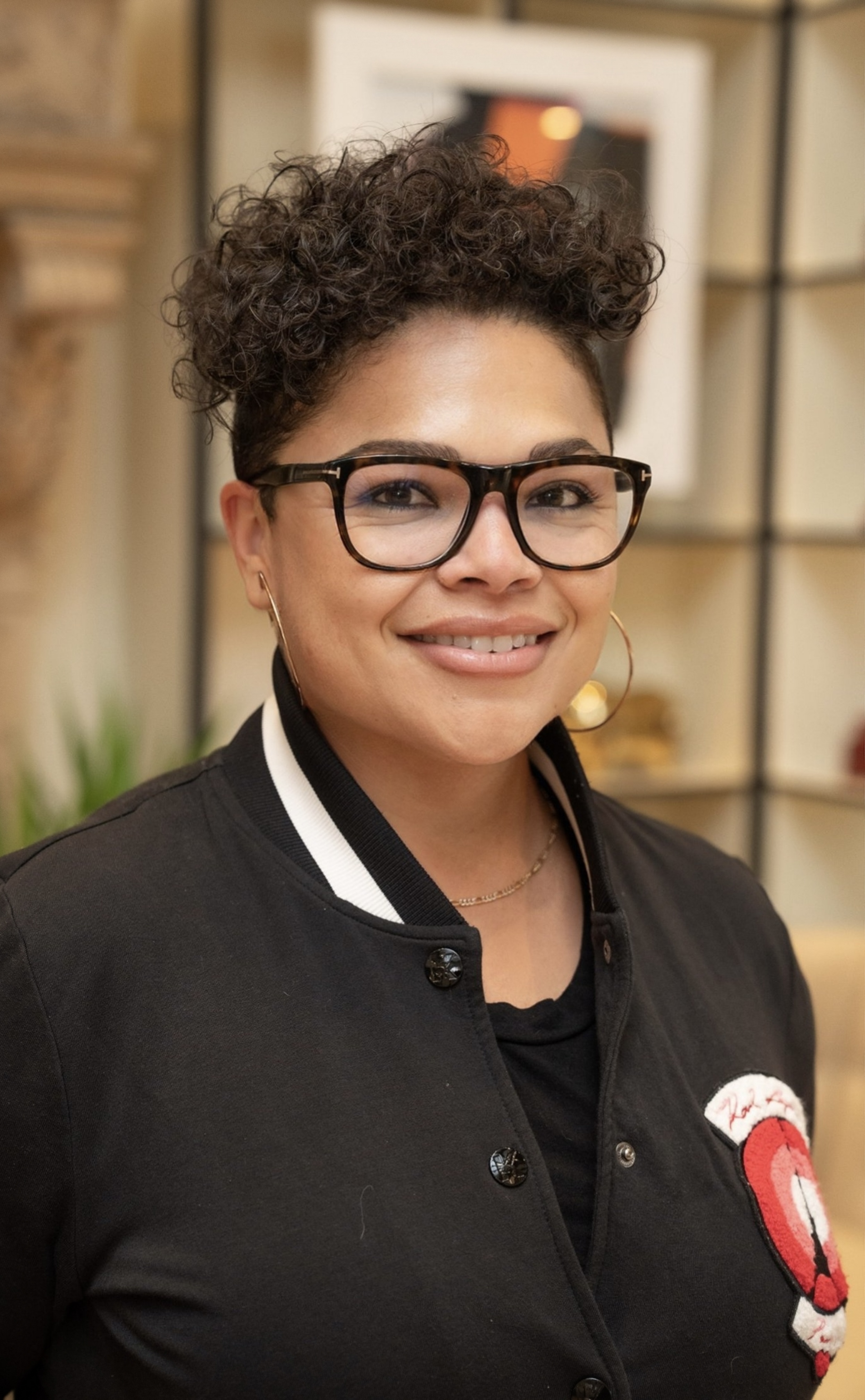 Alison Cerezo, PhD (They/She)
Alison Cerezo, PhD (They/She)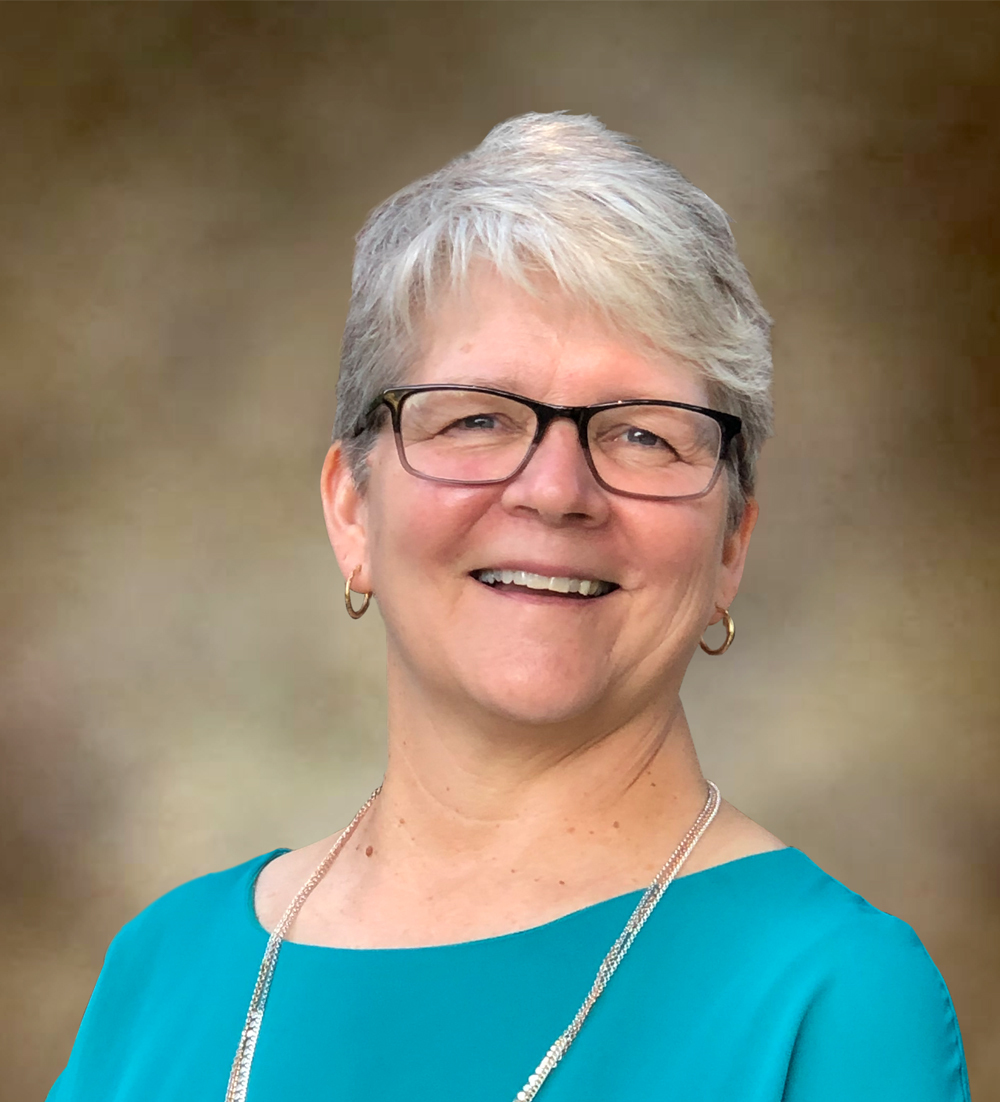
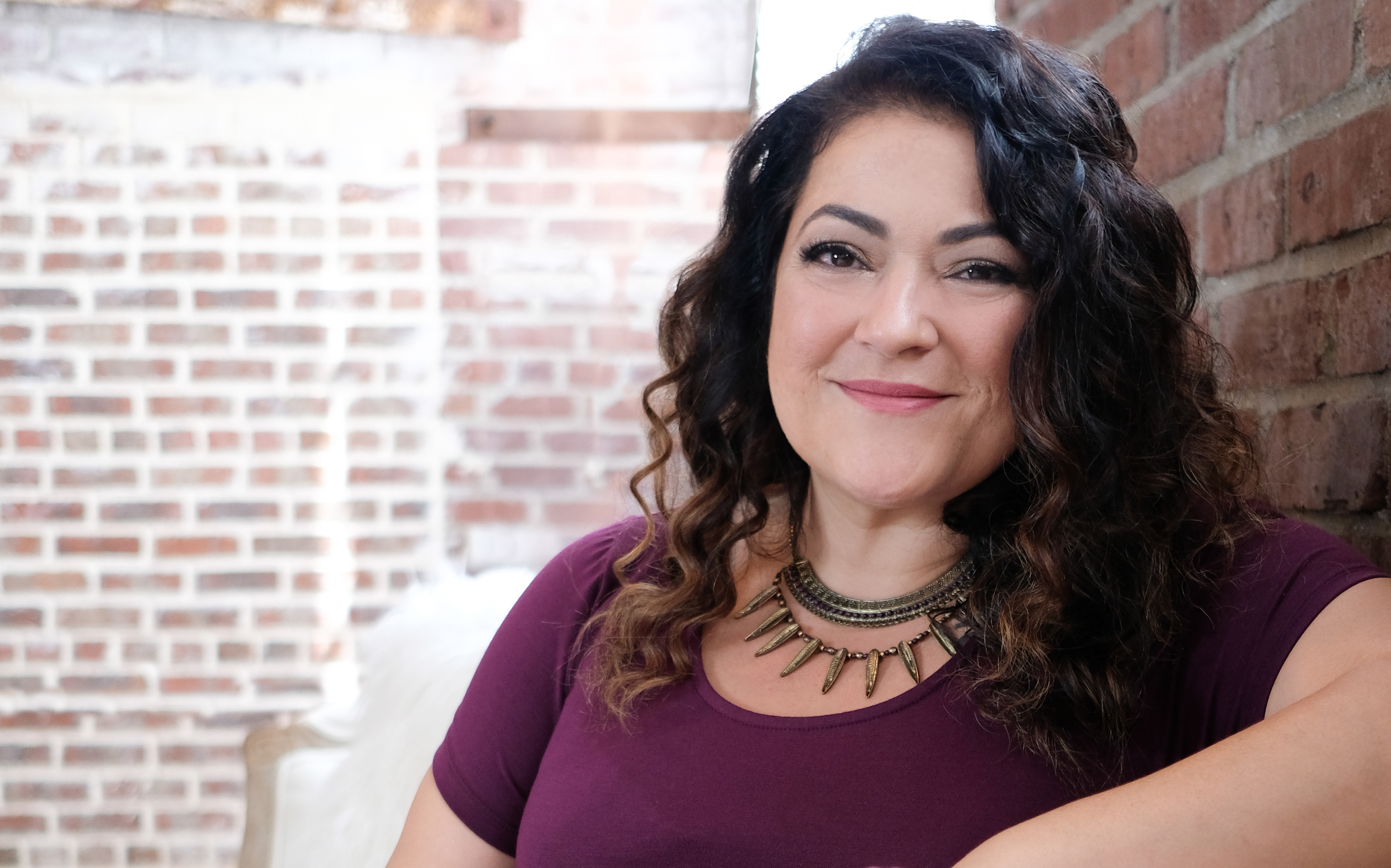
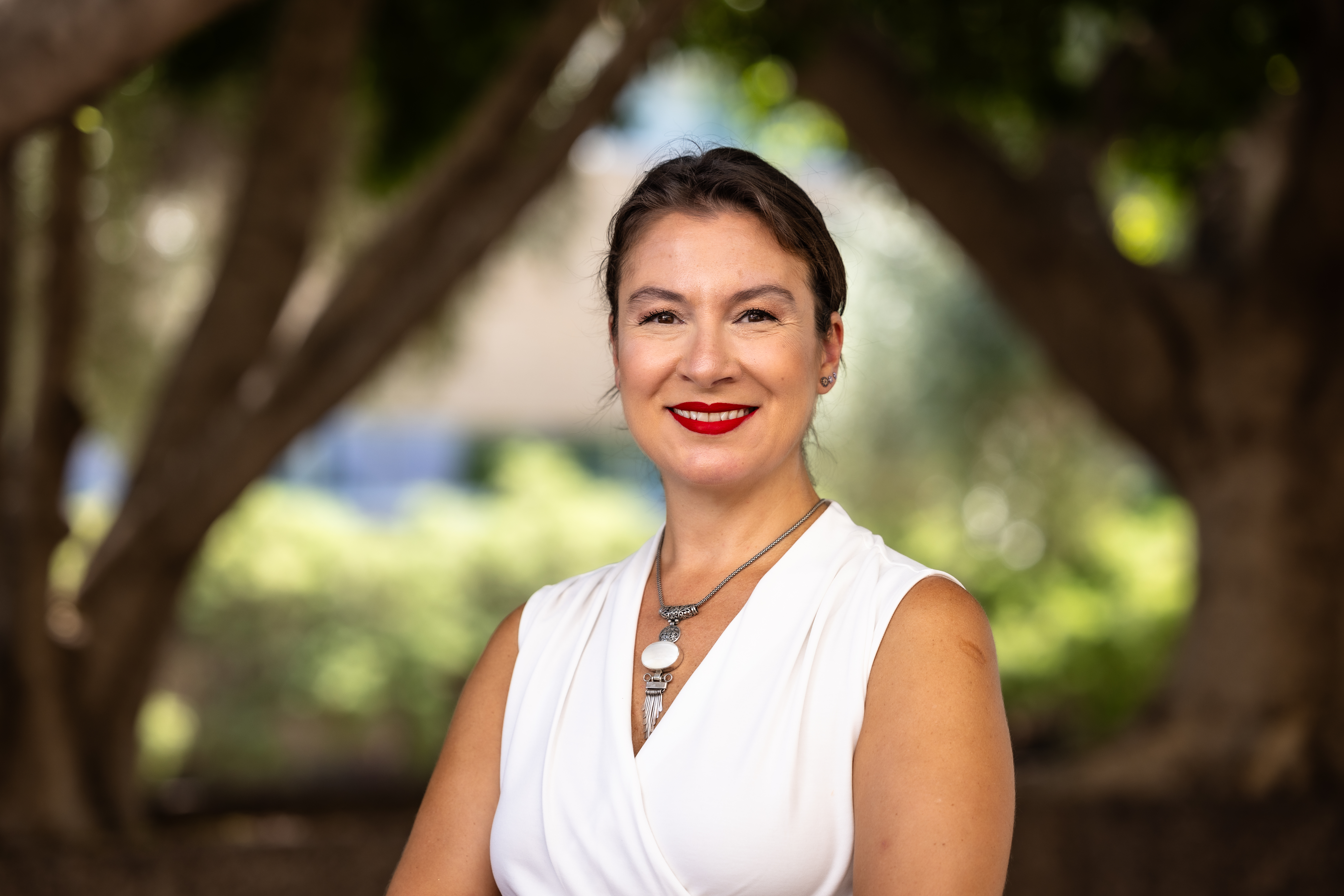
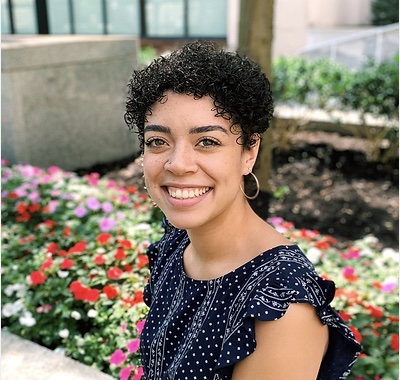
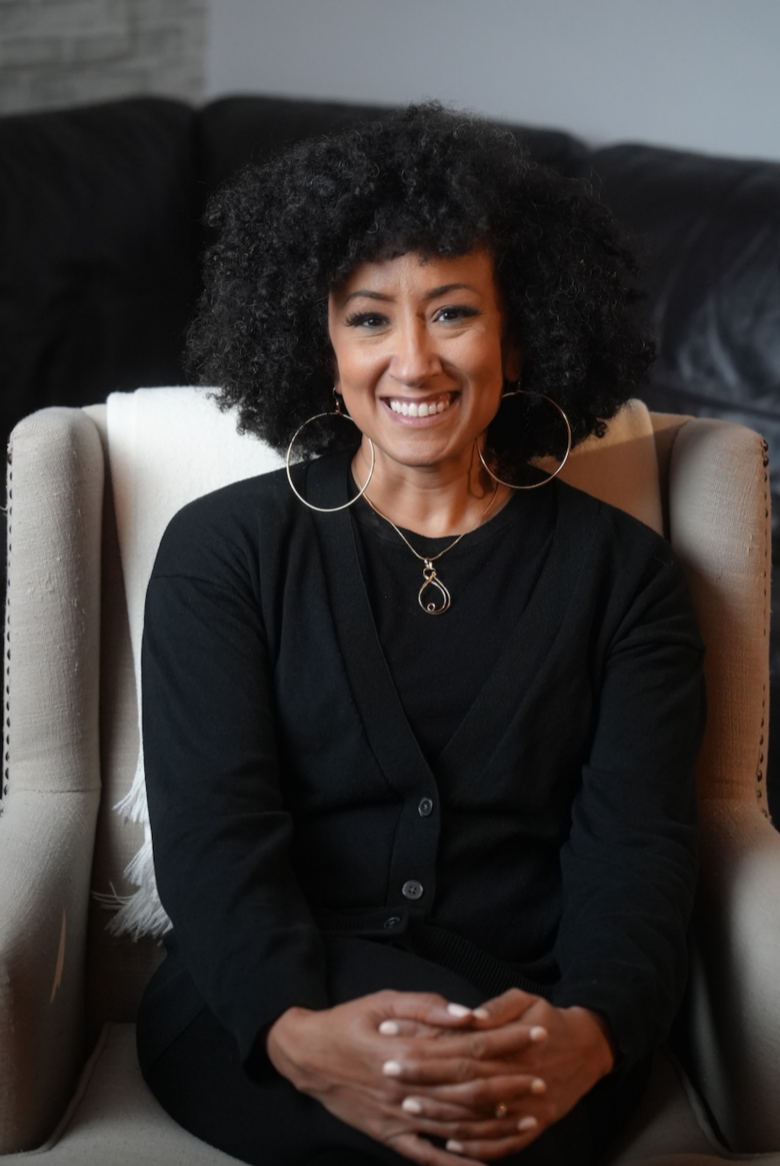
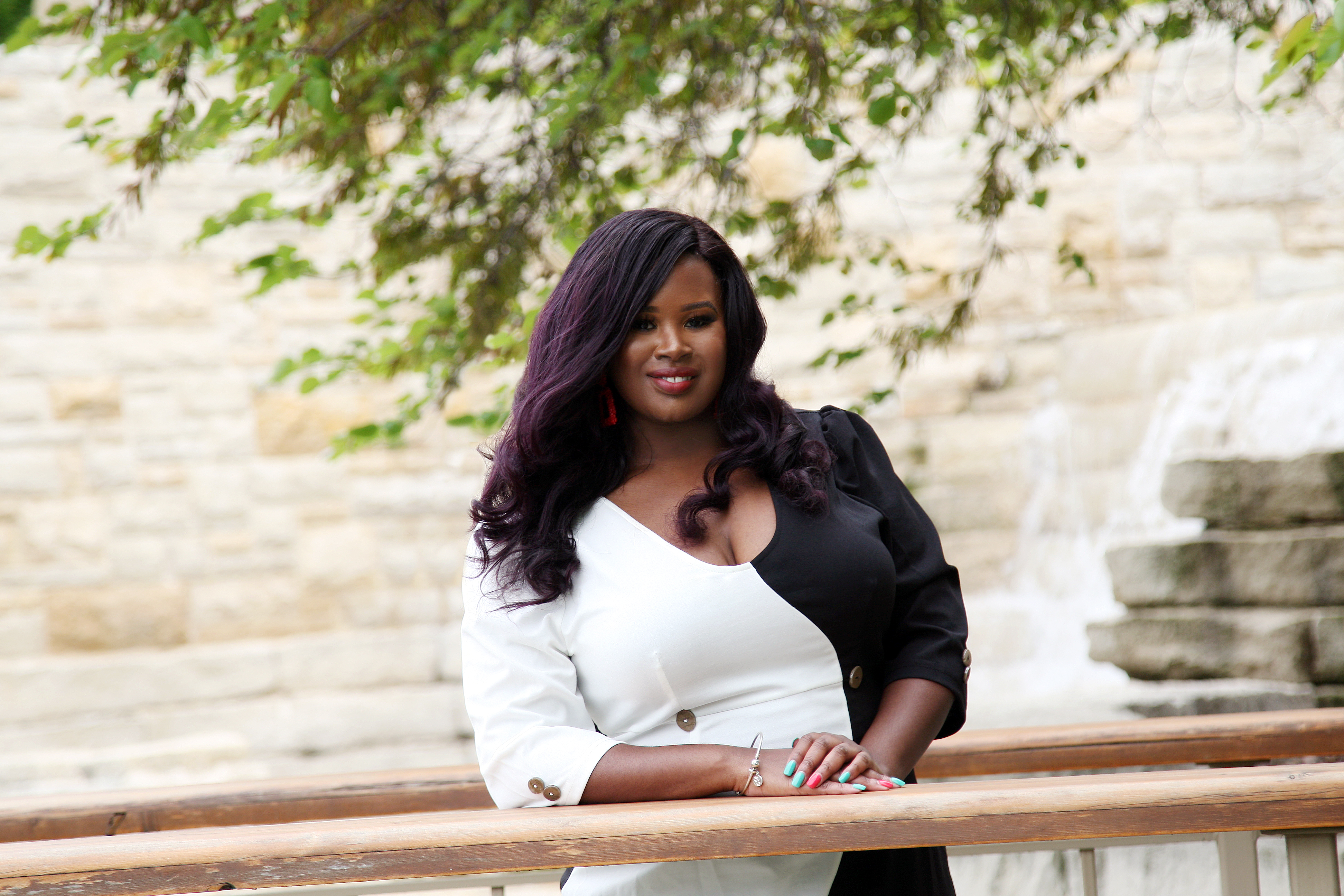

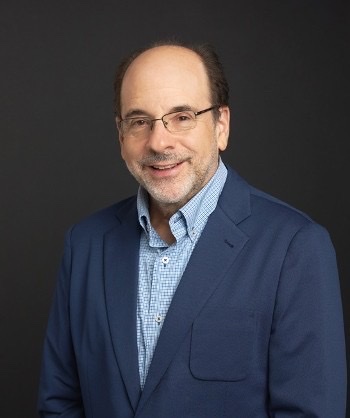
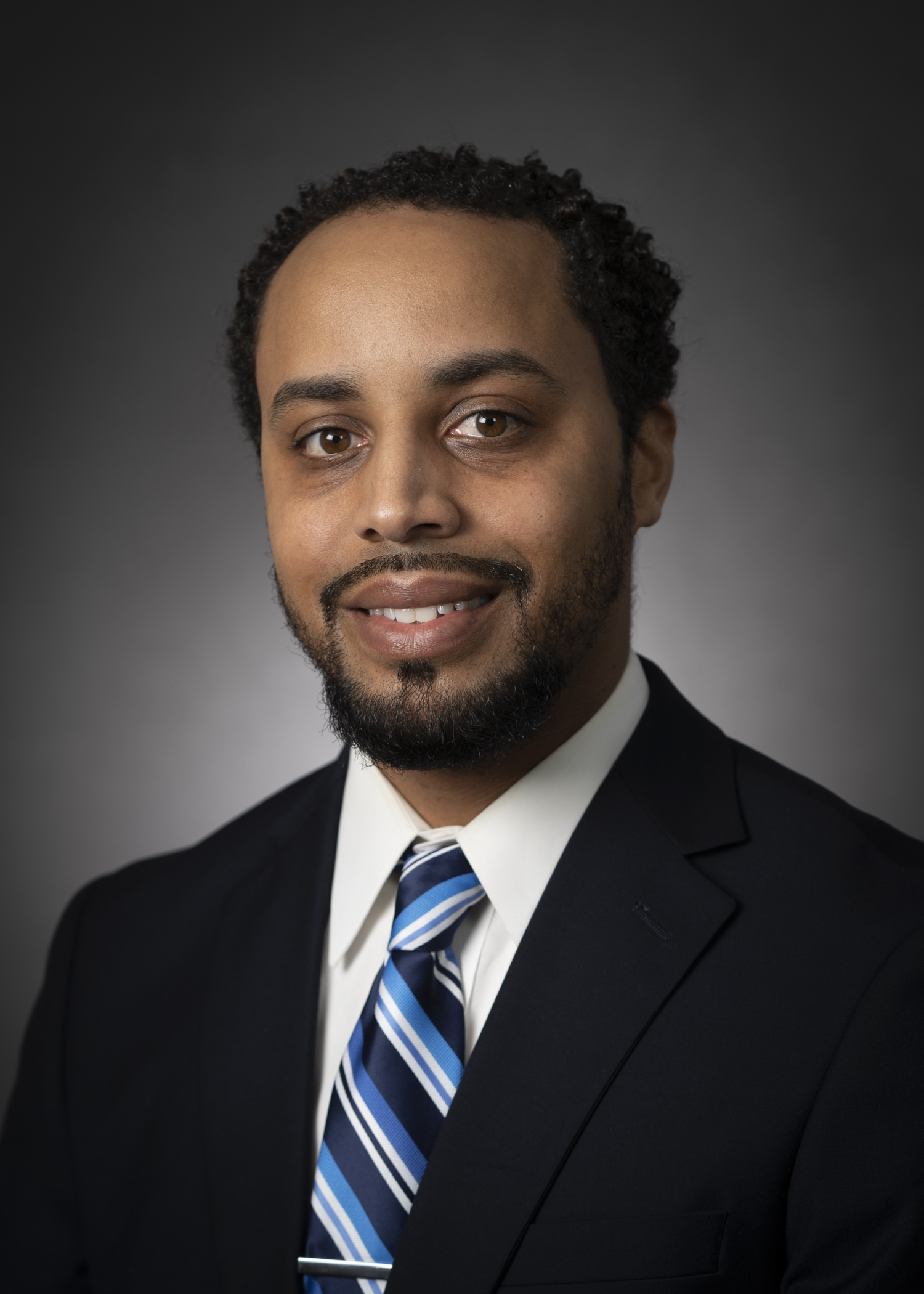
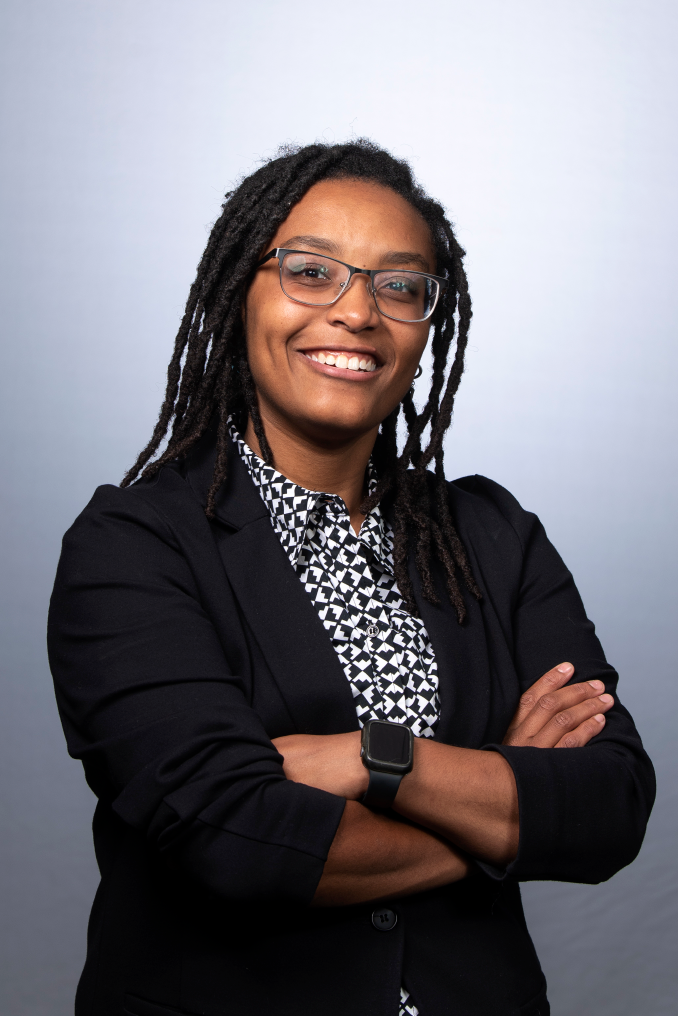
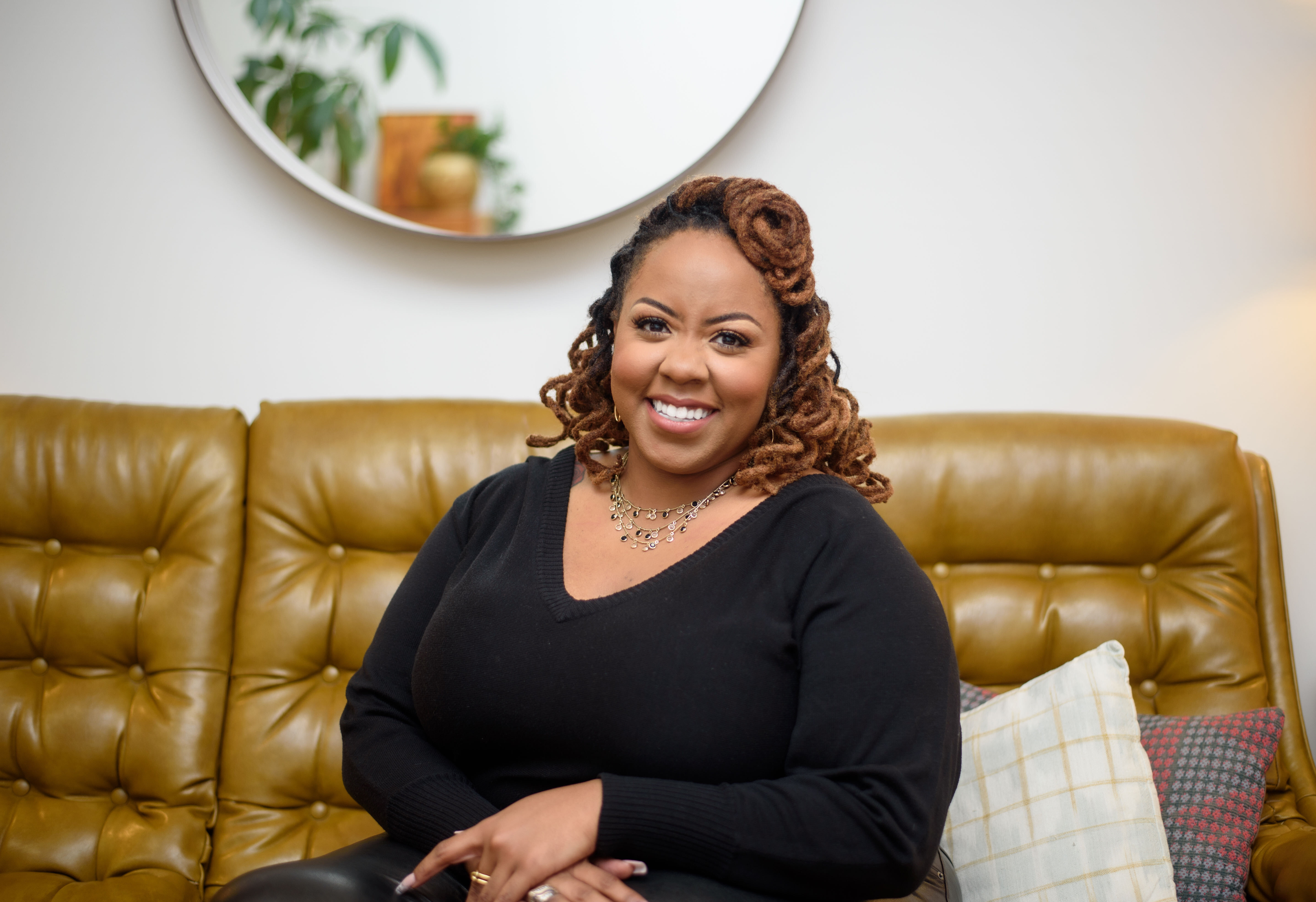
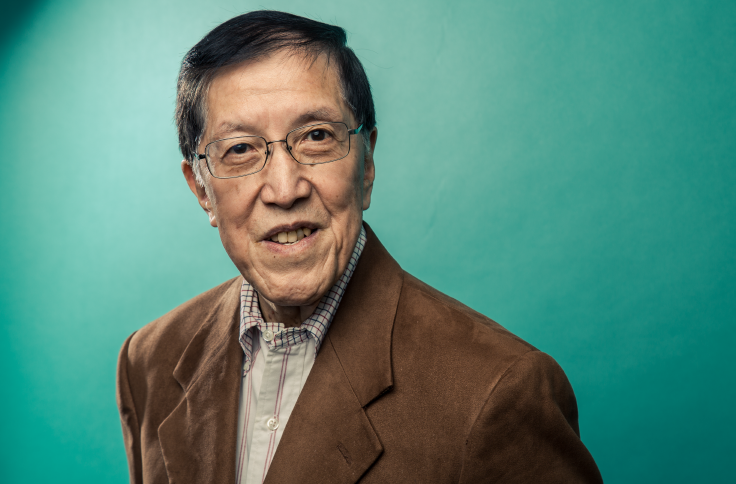
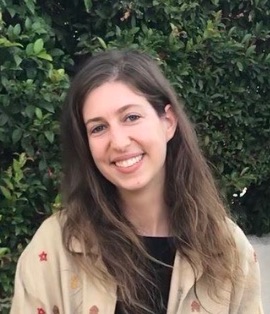
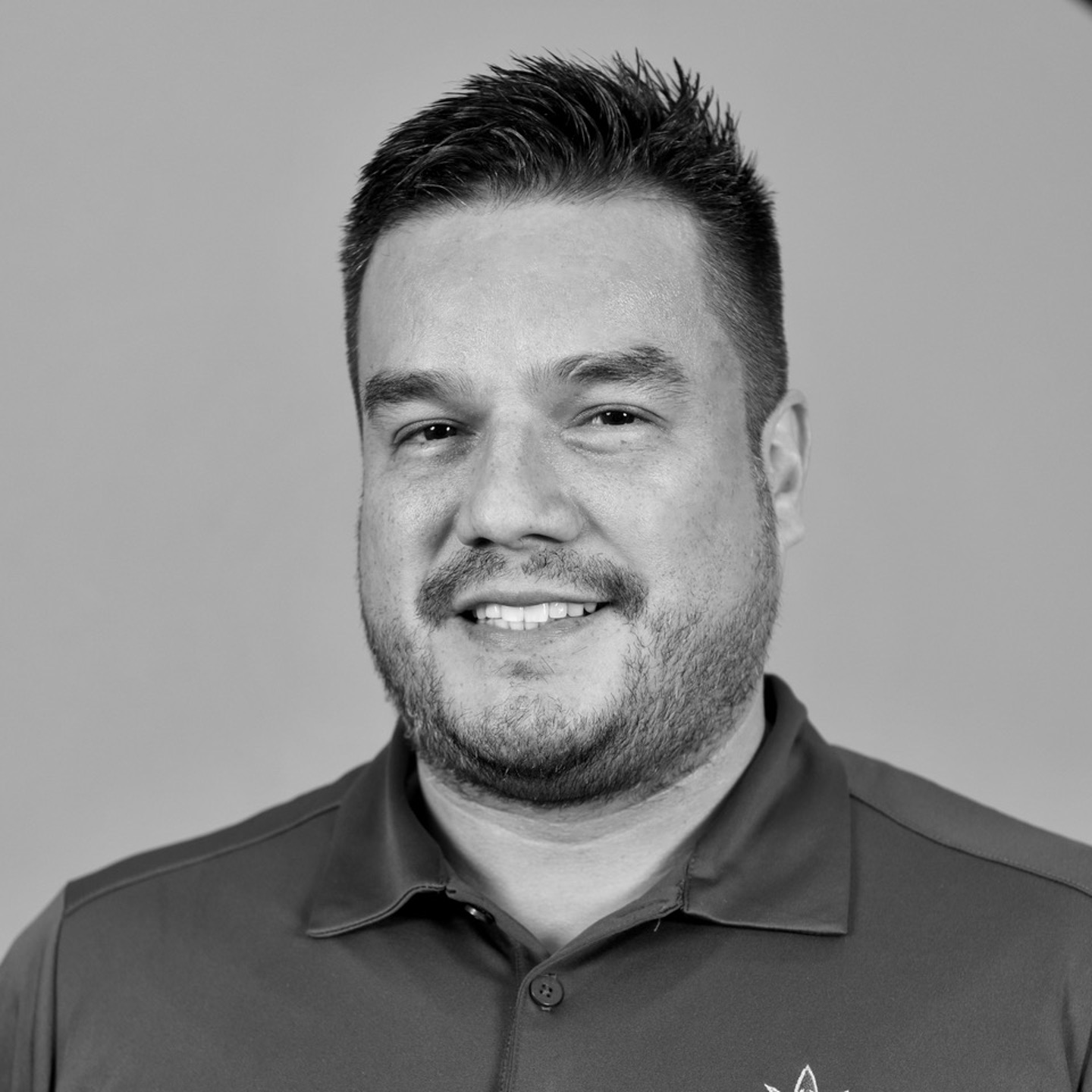
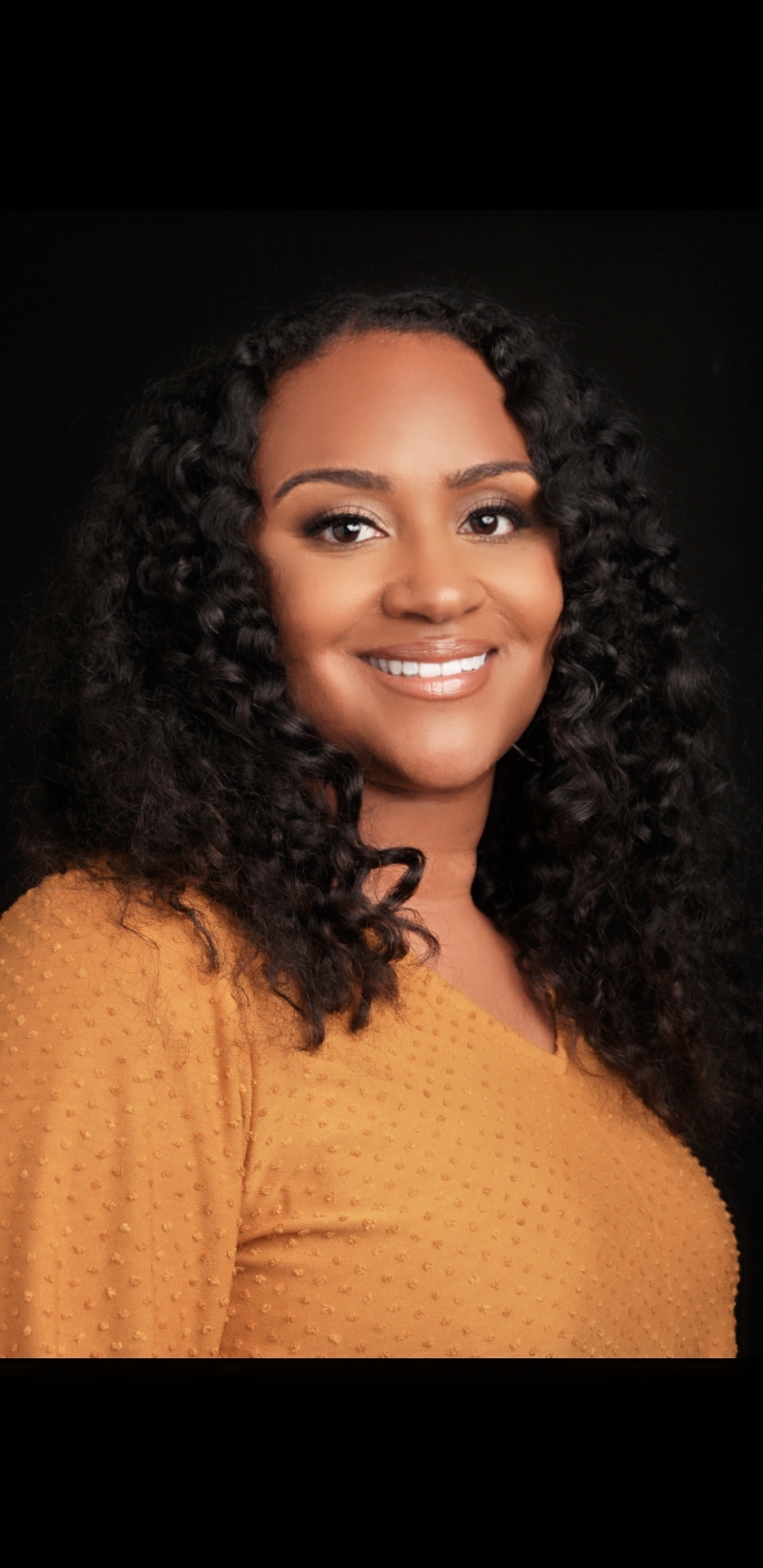
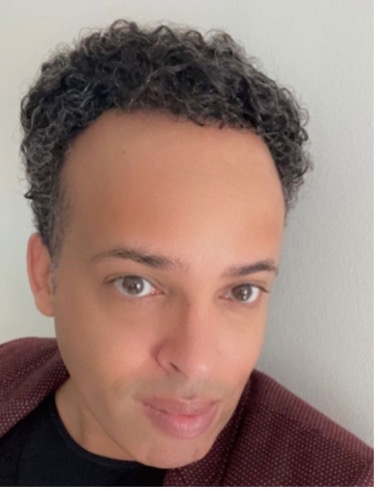
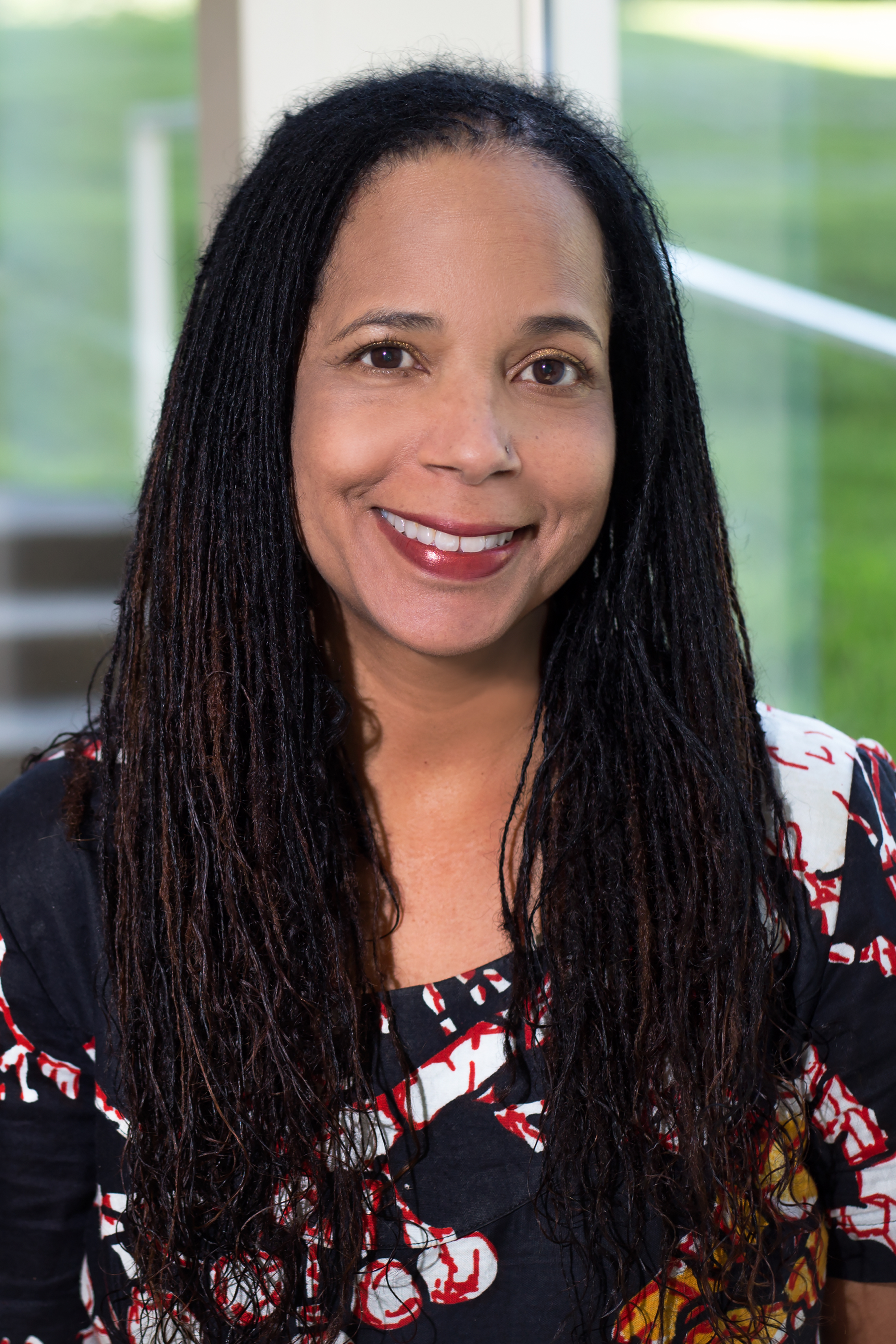
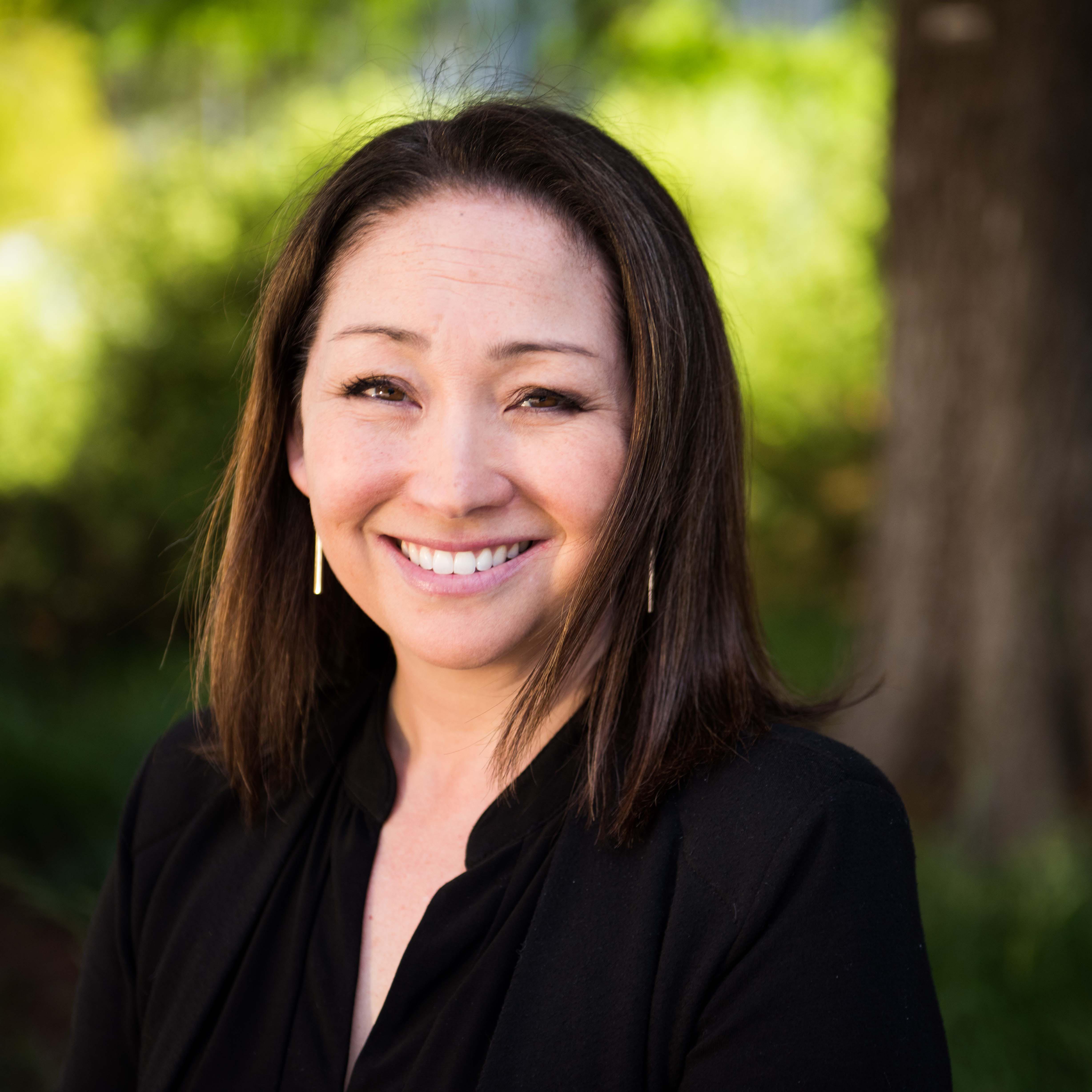
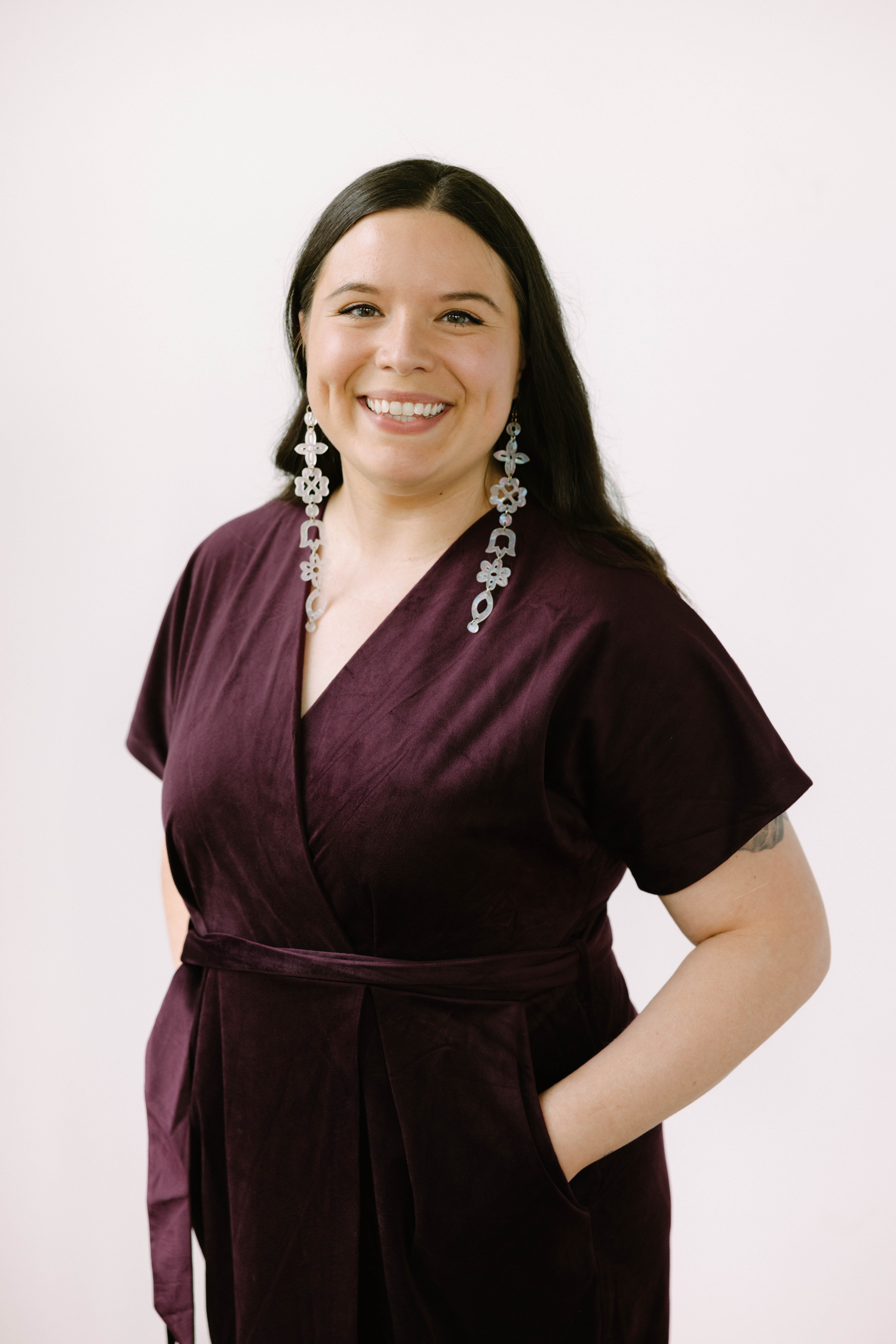
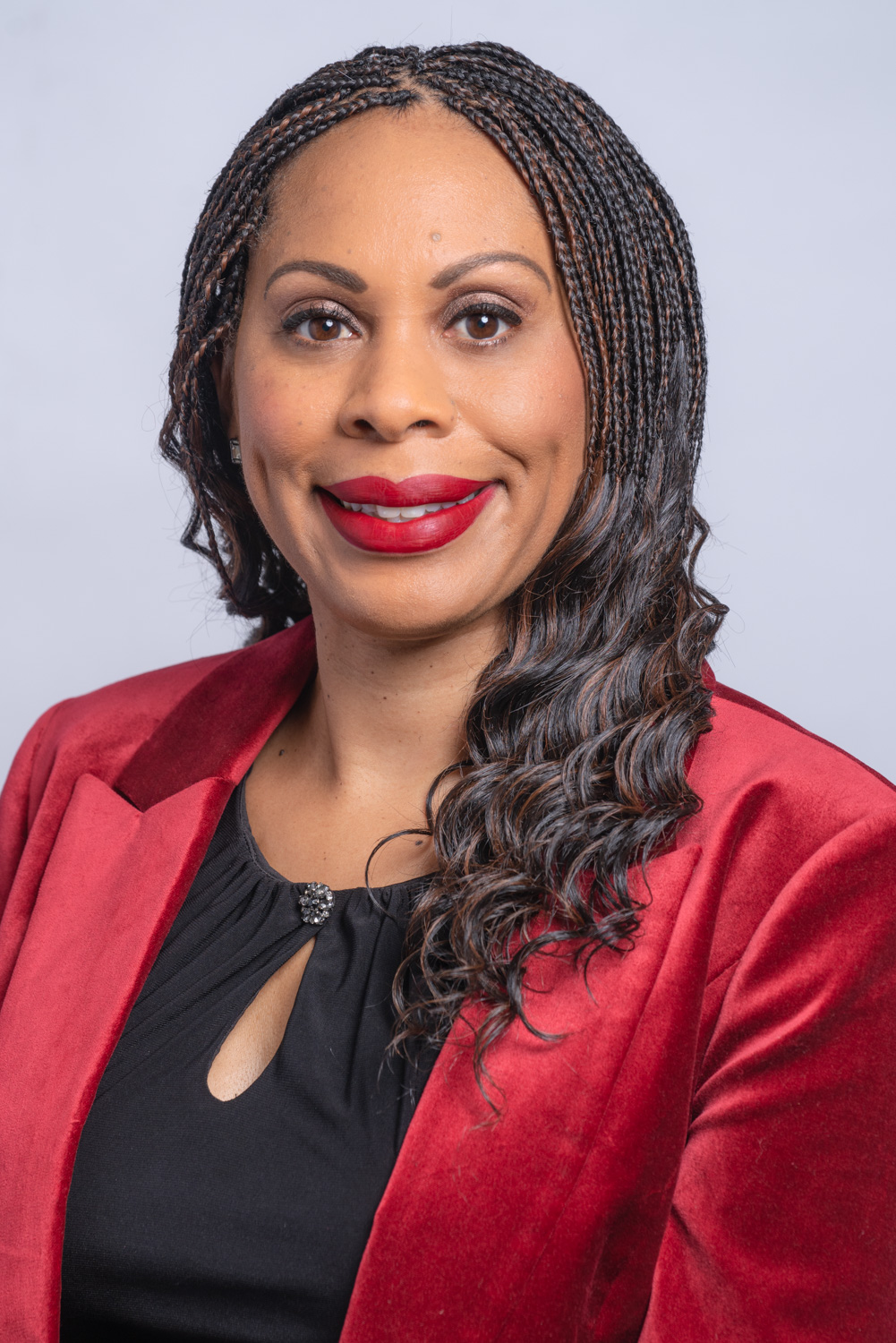
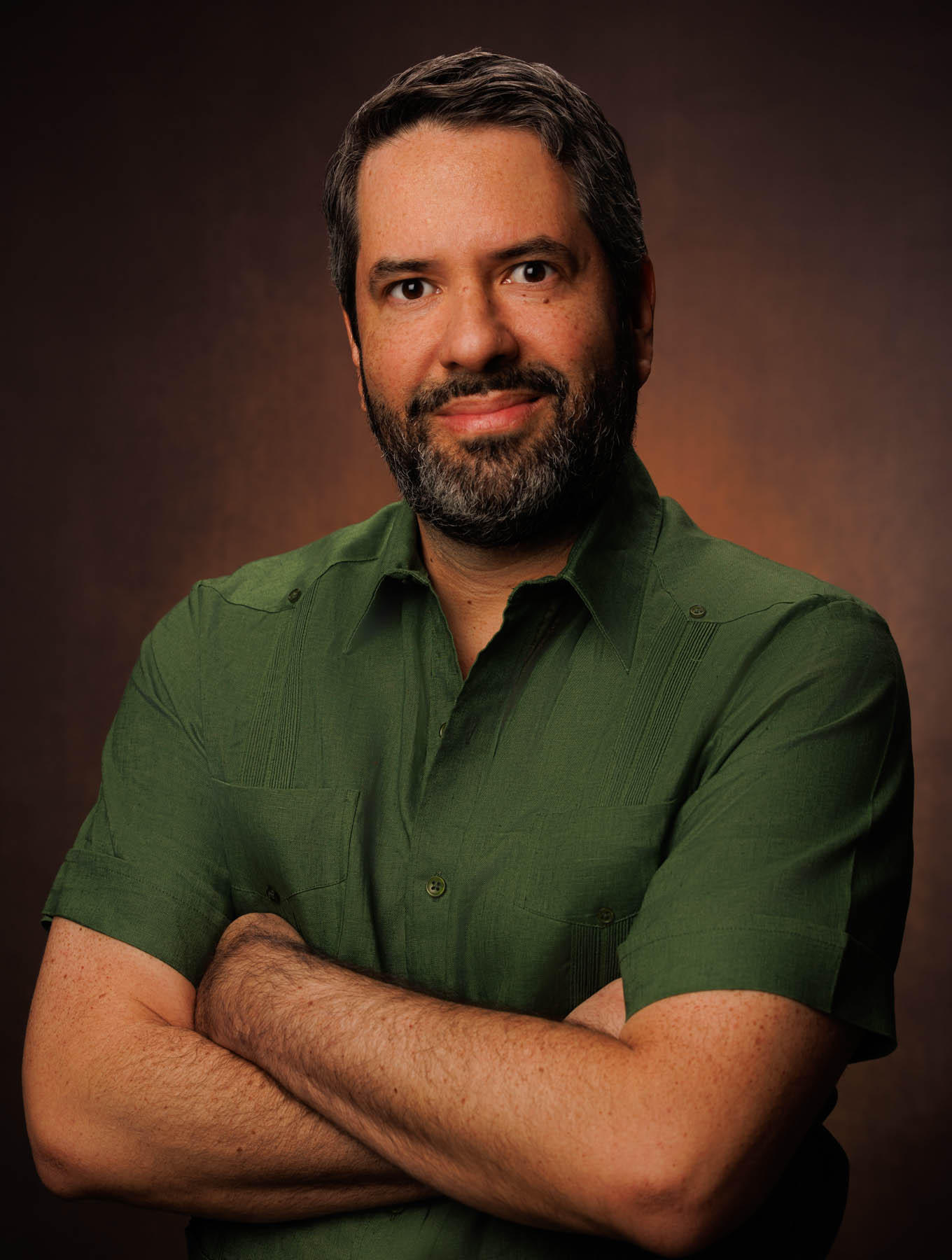
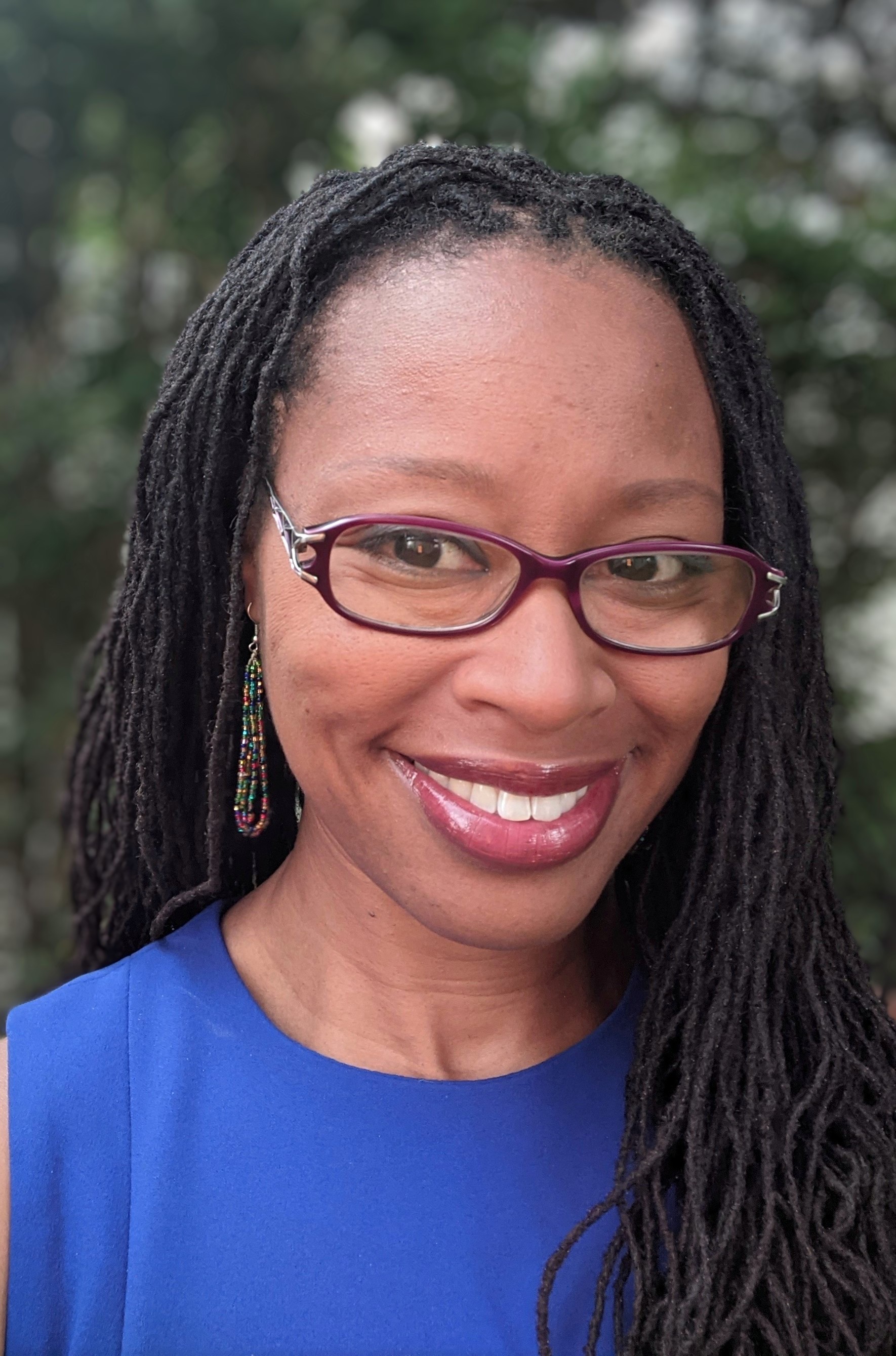 Keya Williams, M.Ed.
Keya Williams, M.Ed.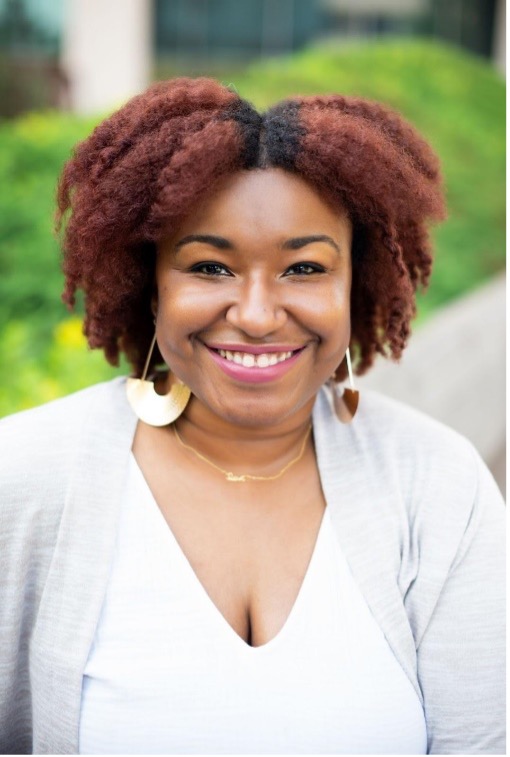
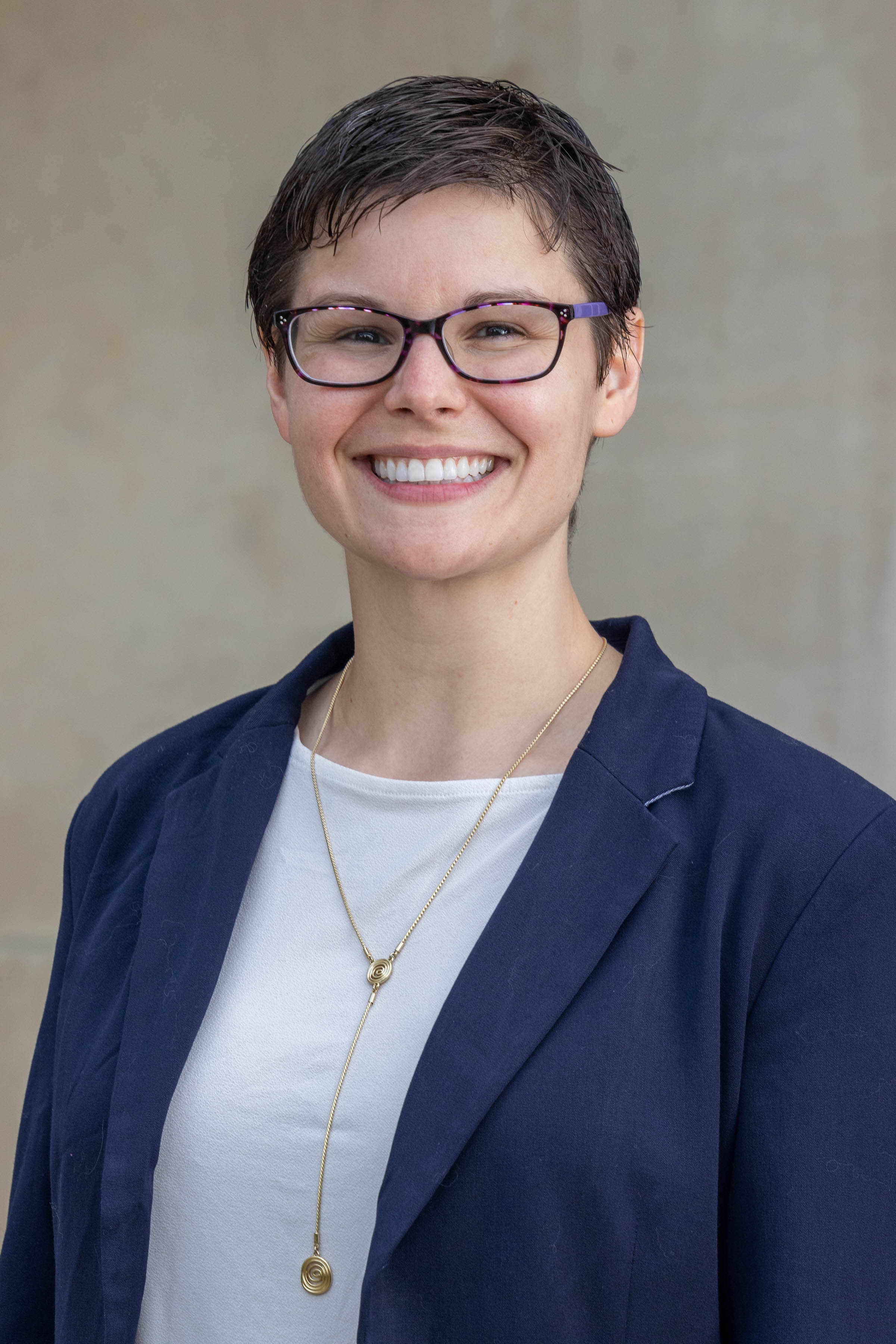
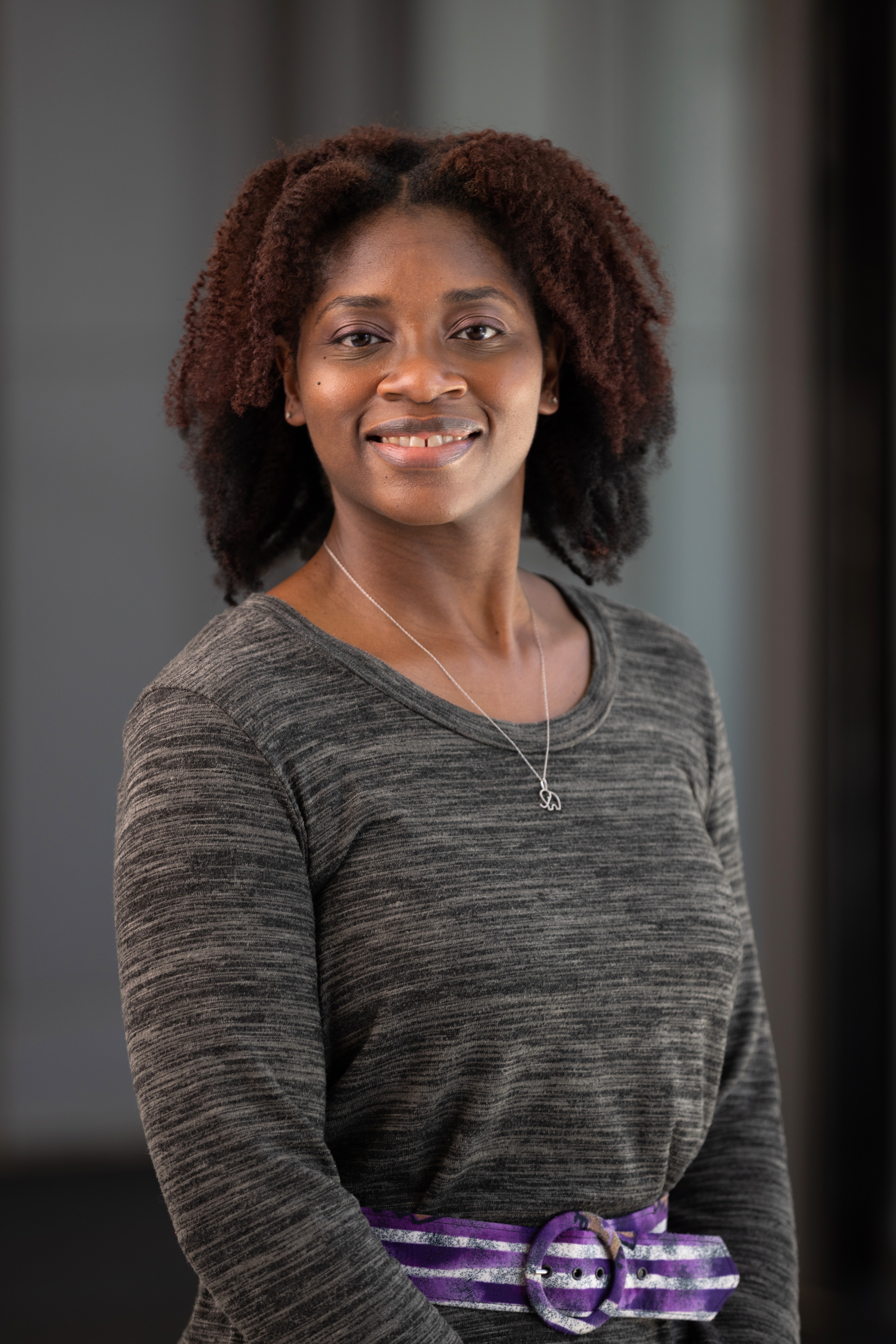 LaTrice Wright, PhD
LaTrice Wright, PhD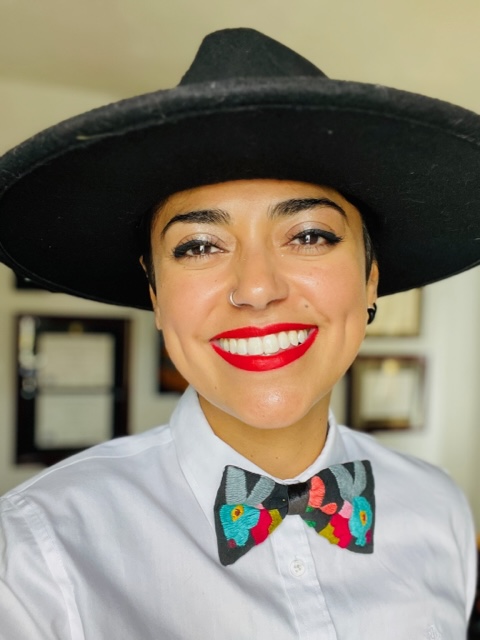 Laura Minero, PhD
Laura Minero, PhD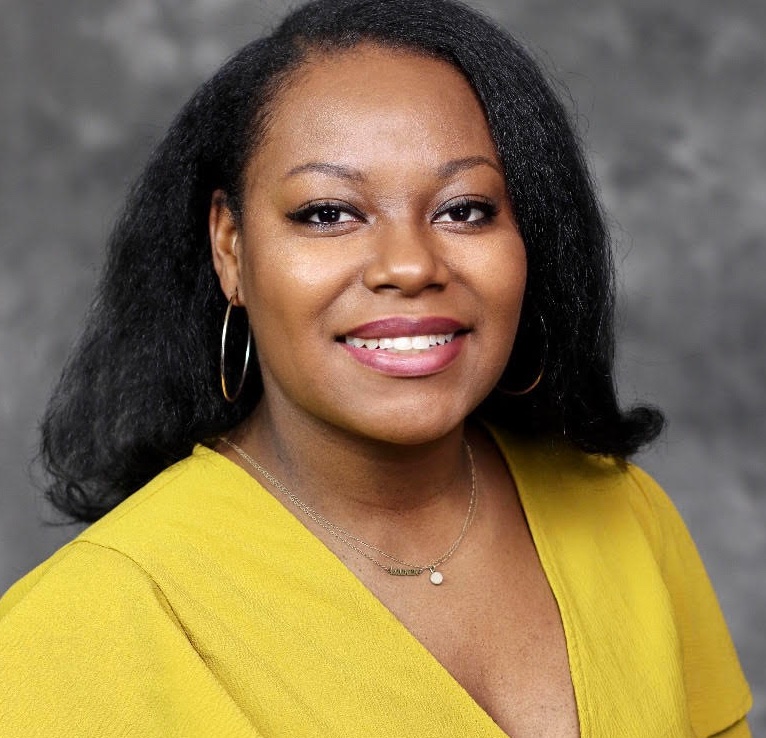
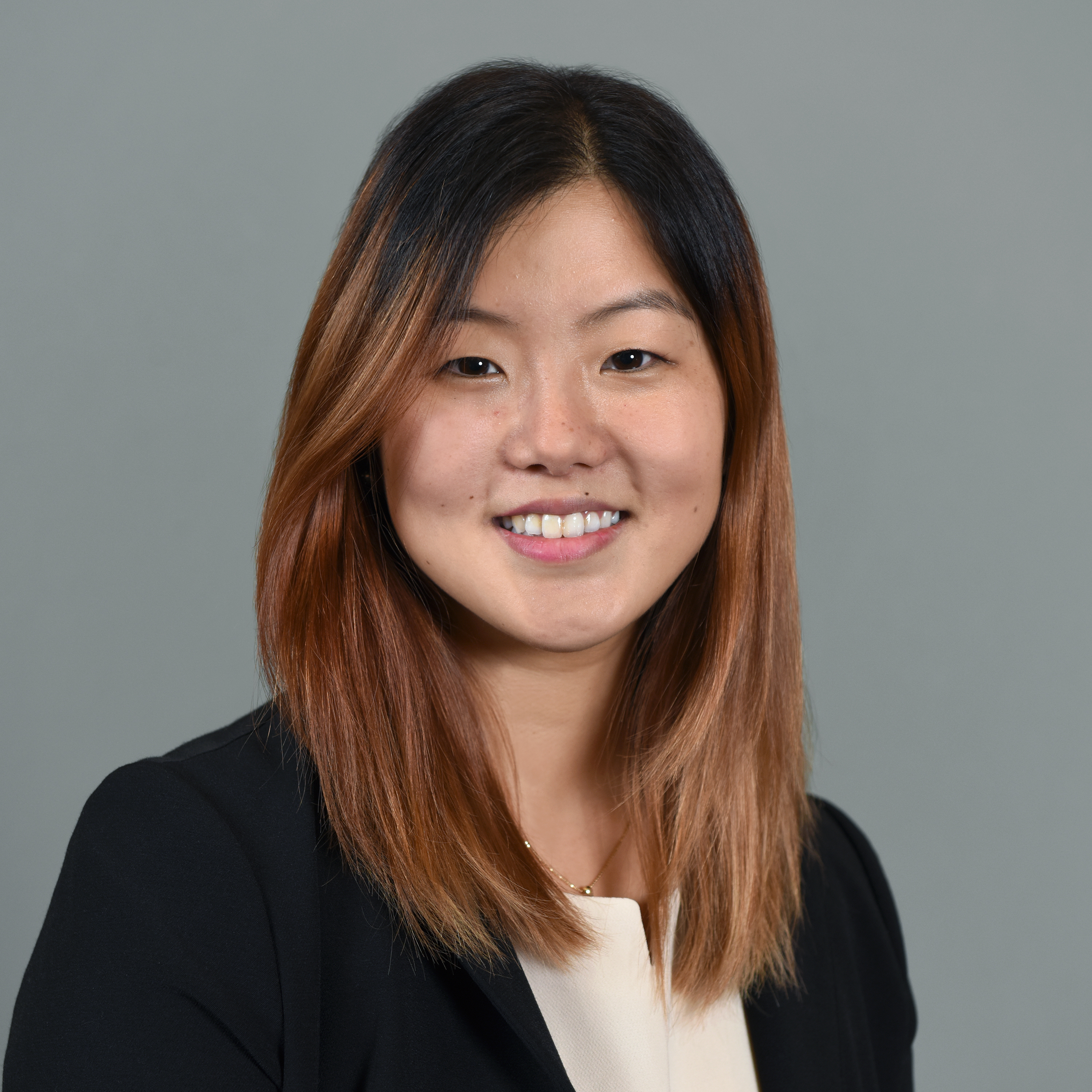
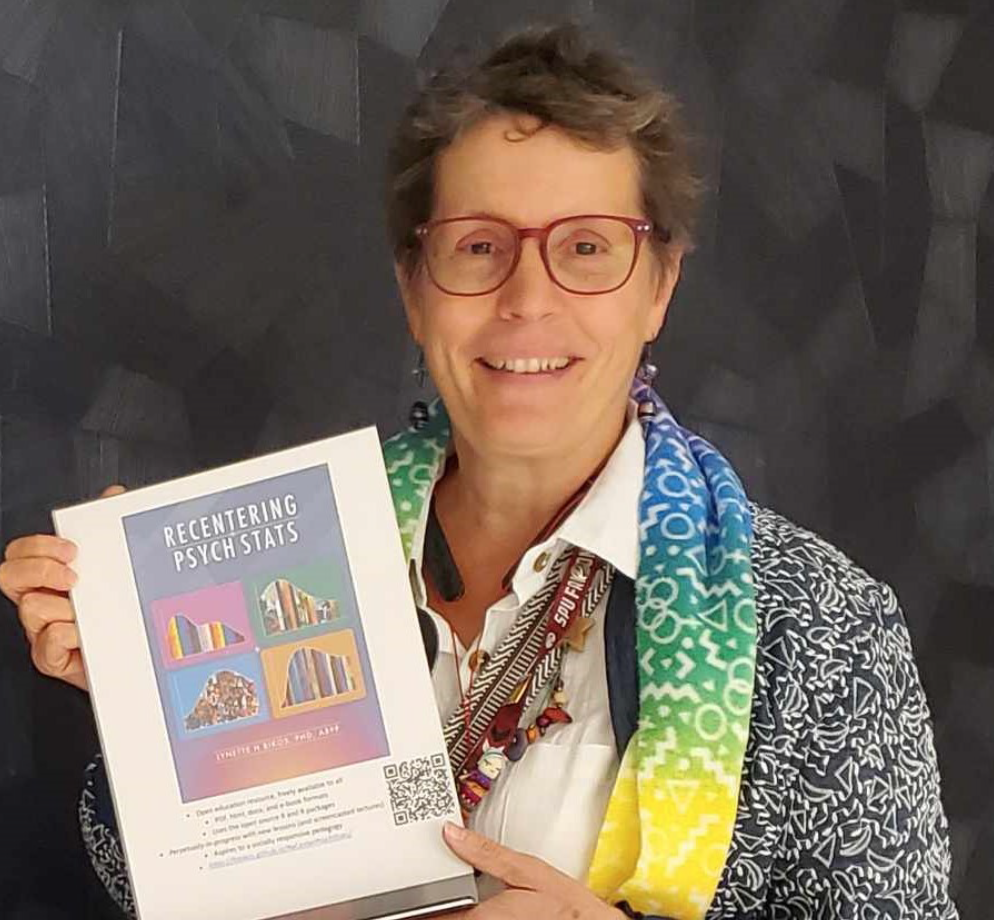
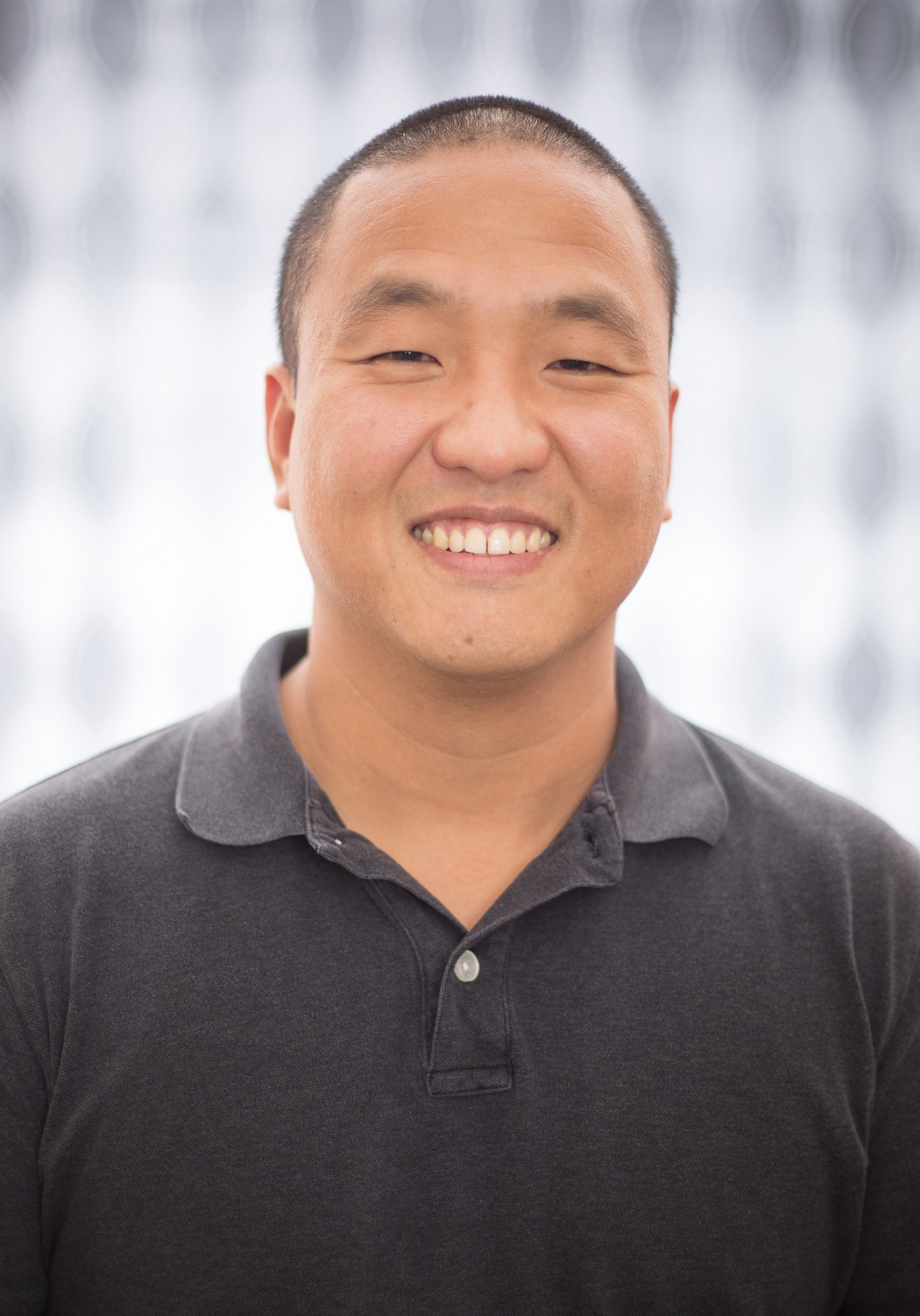
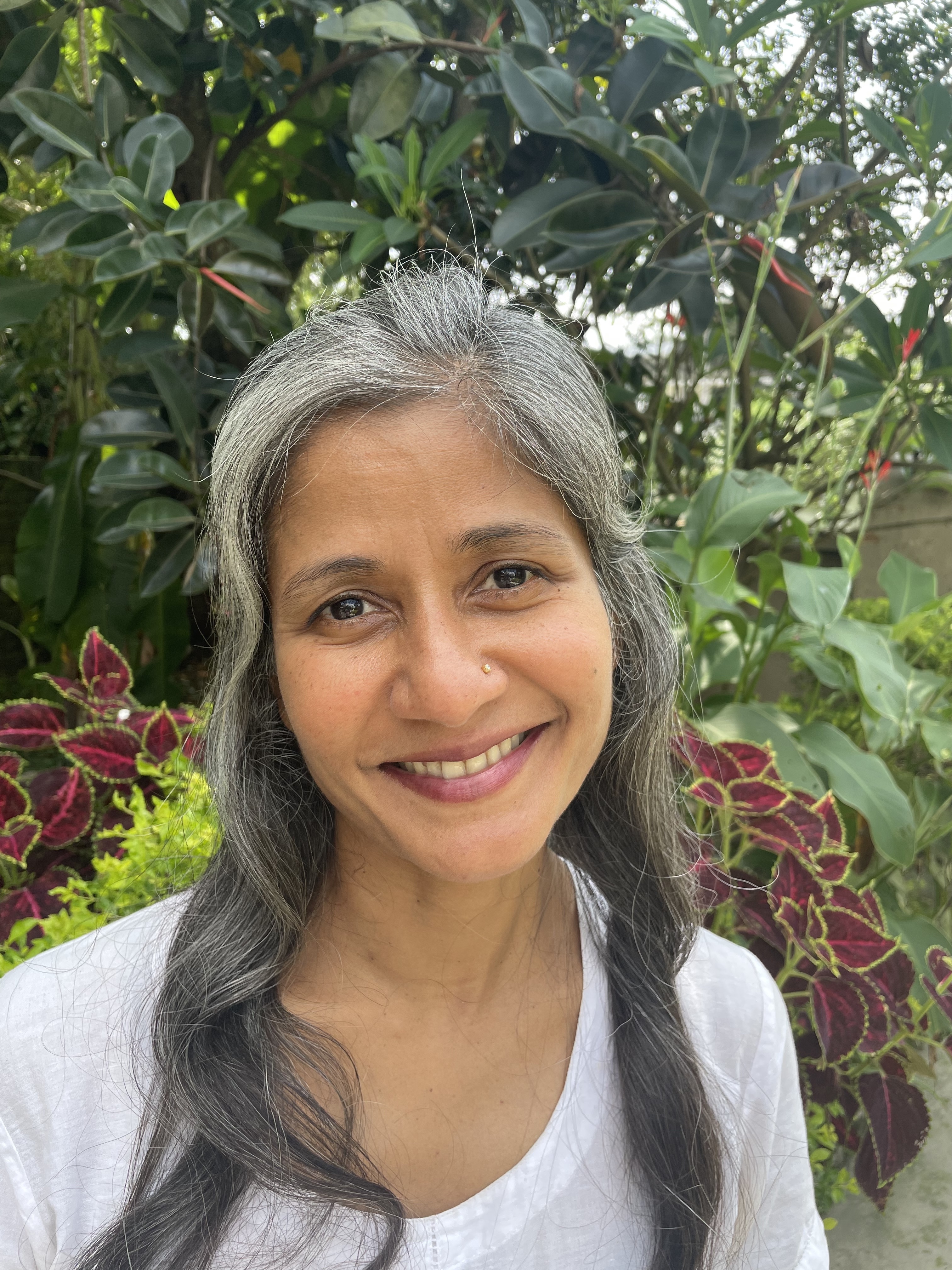
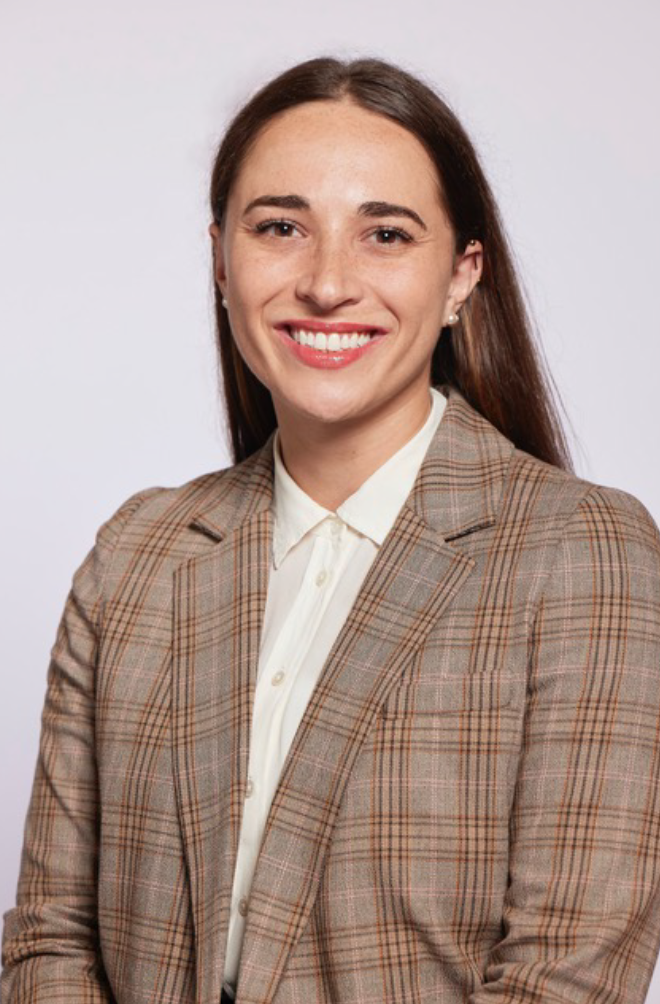
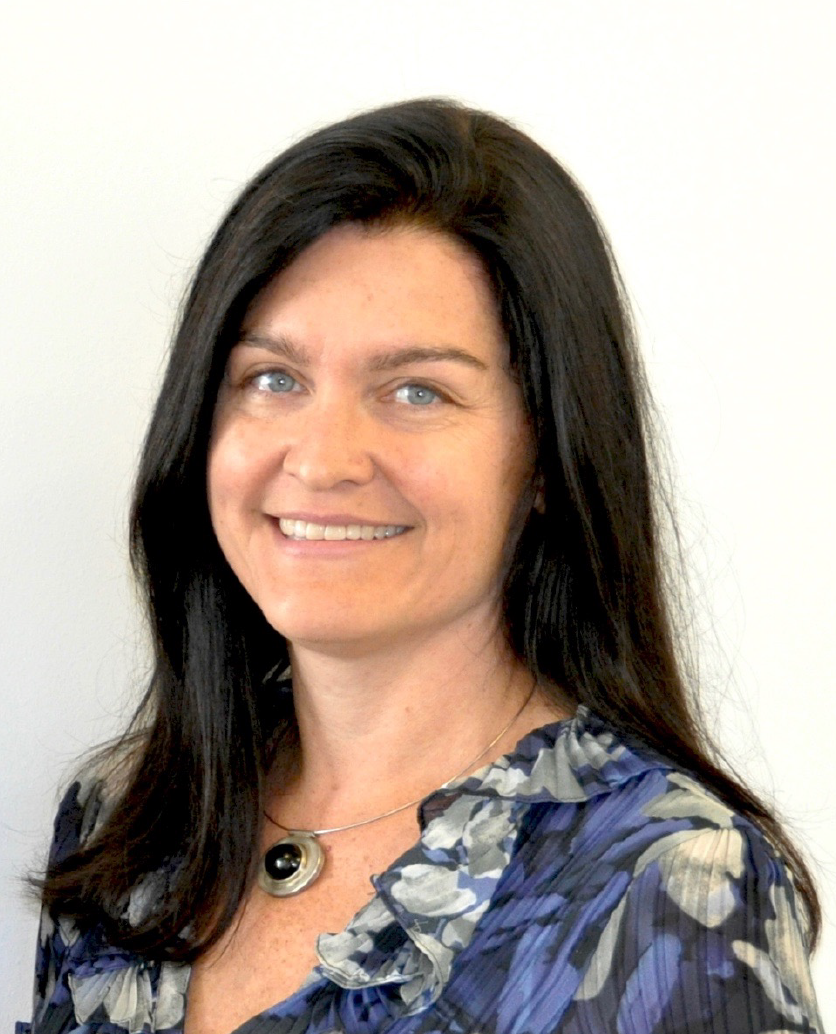
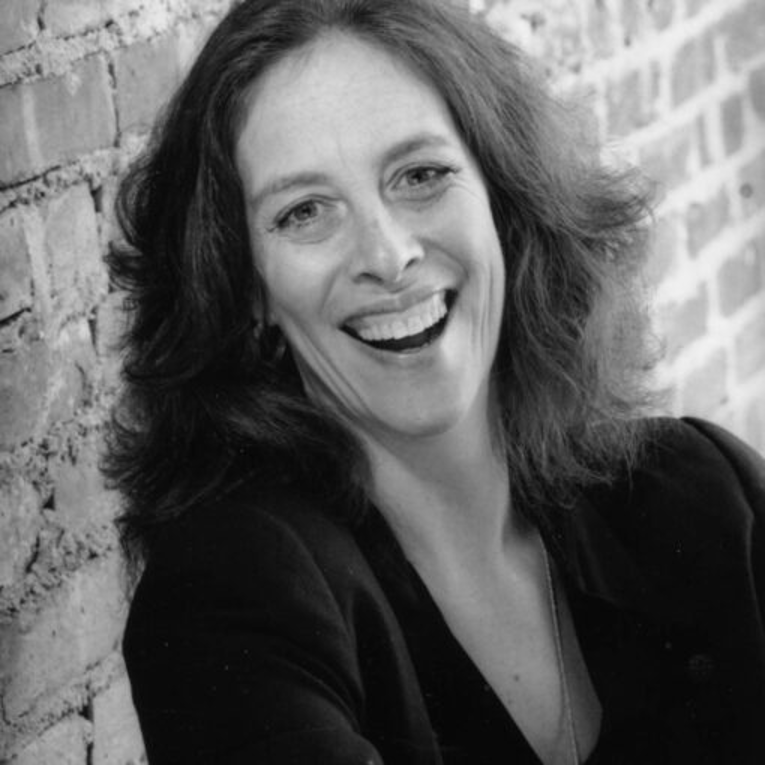
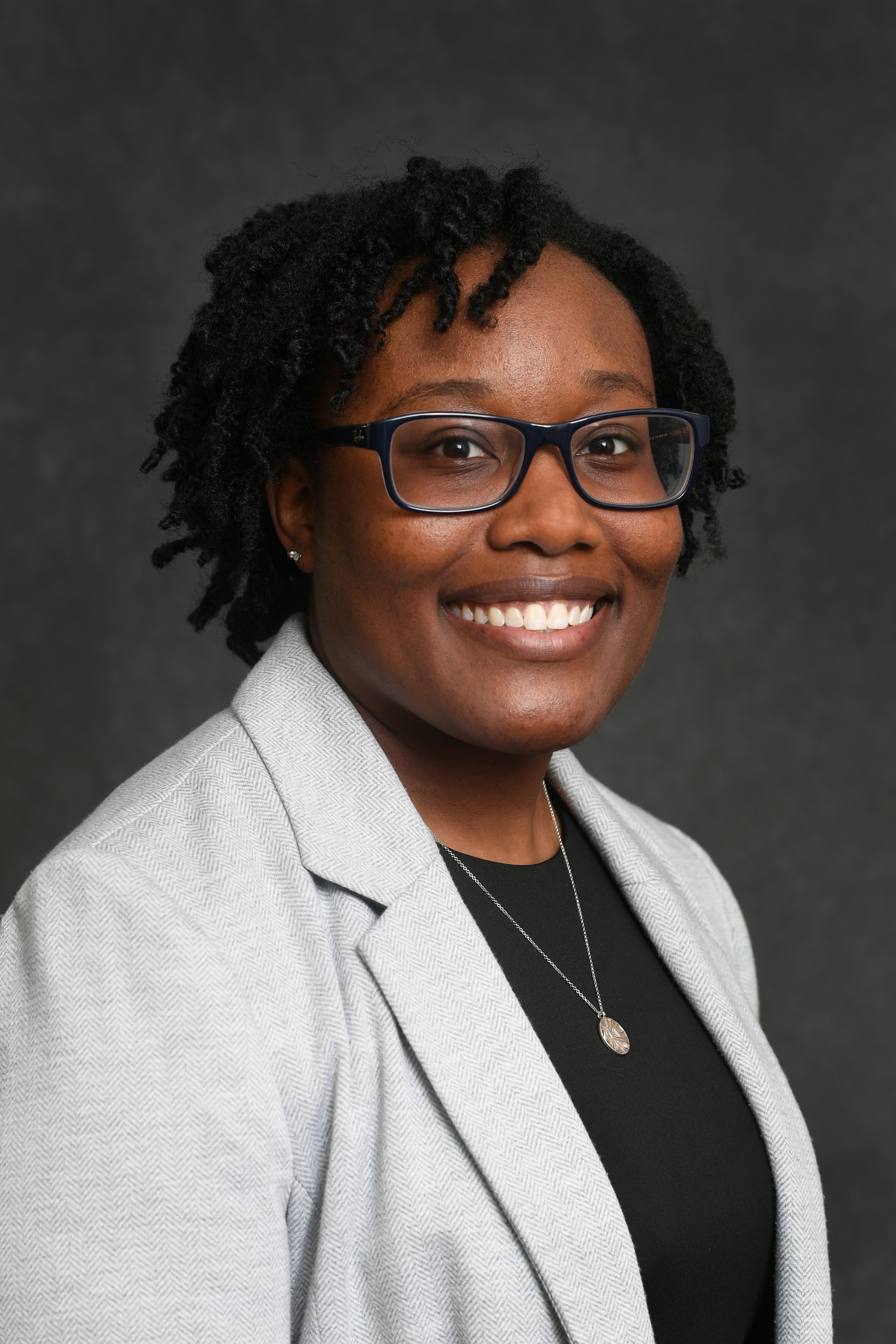
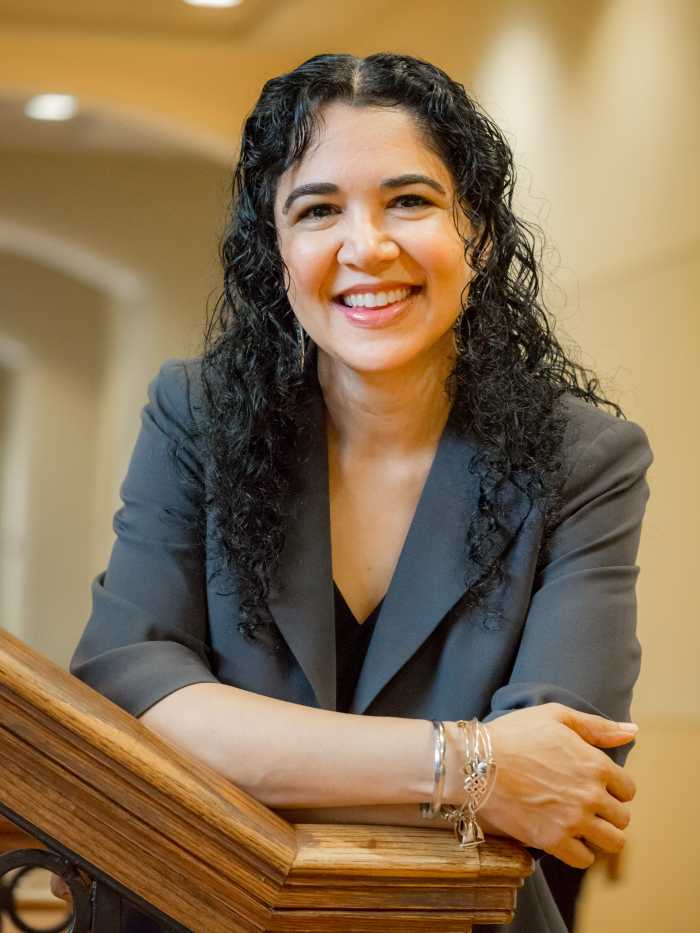
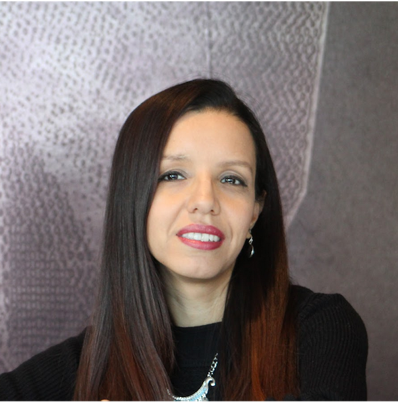
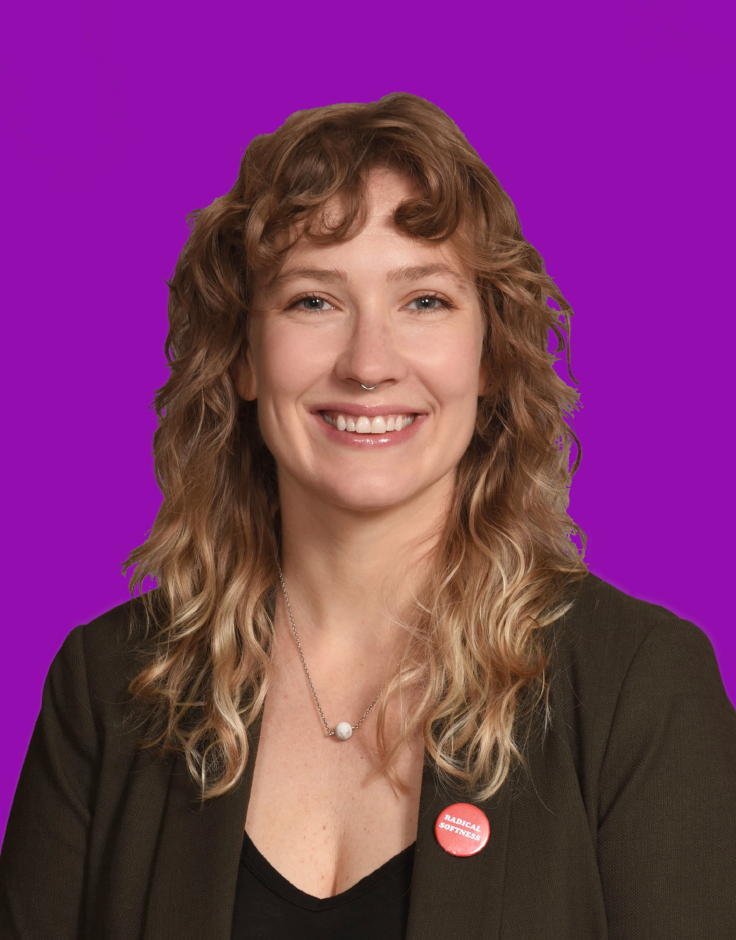
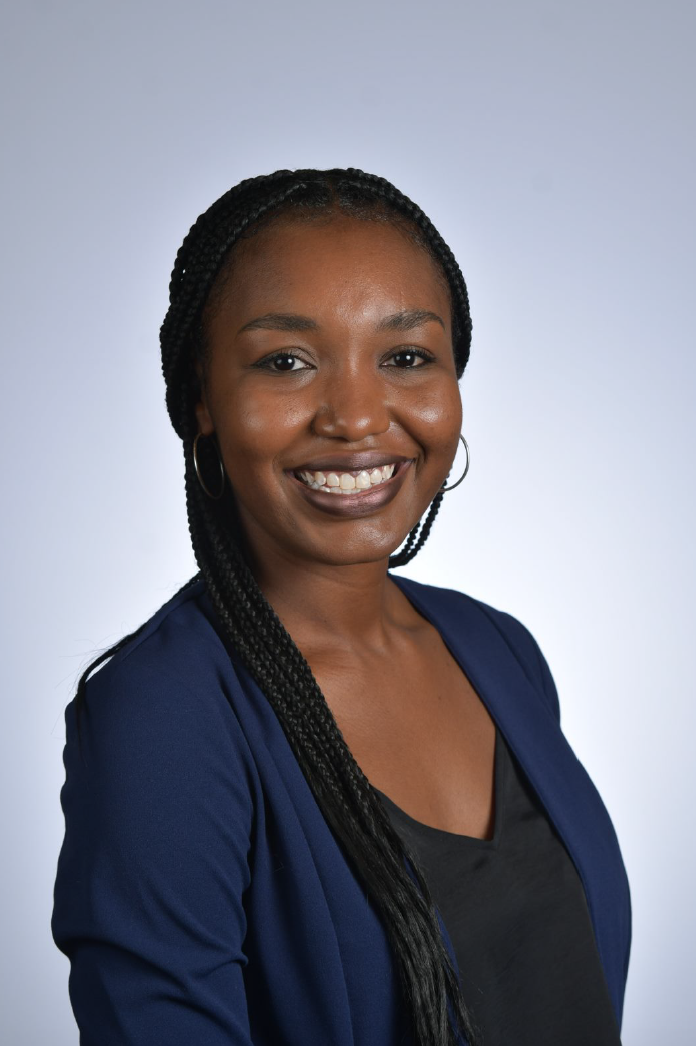
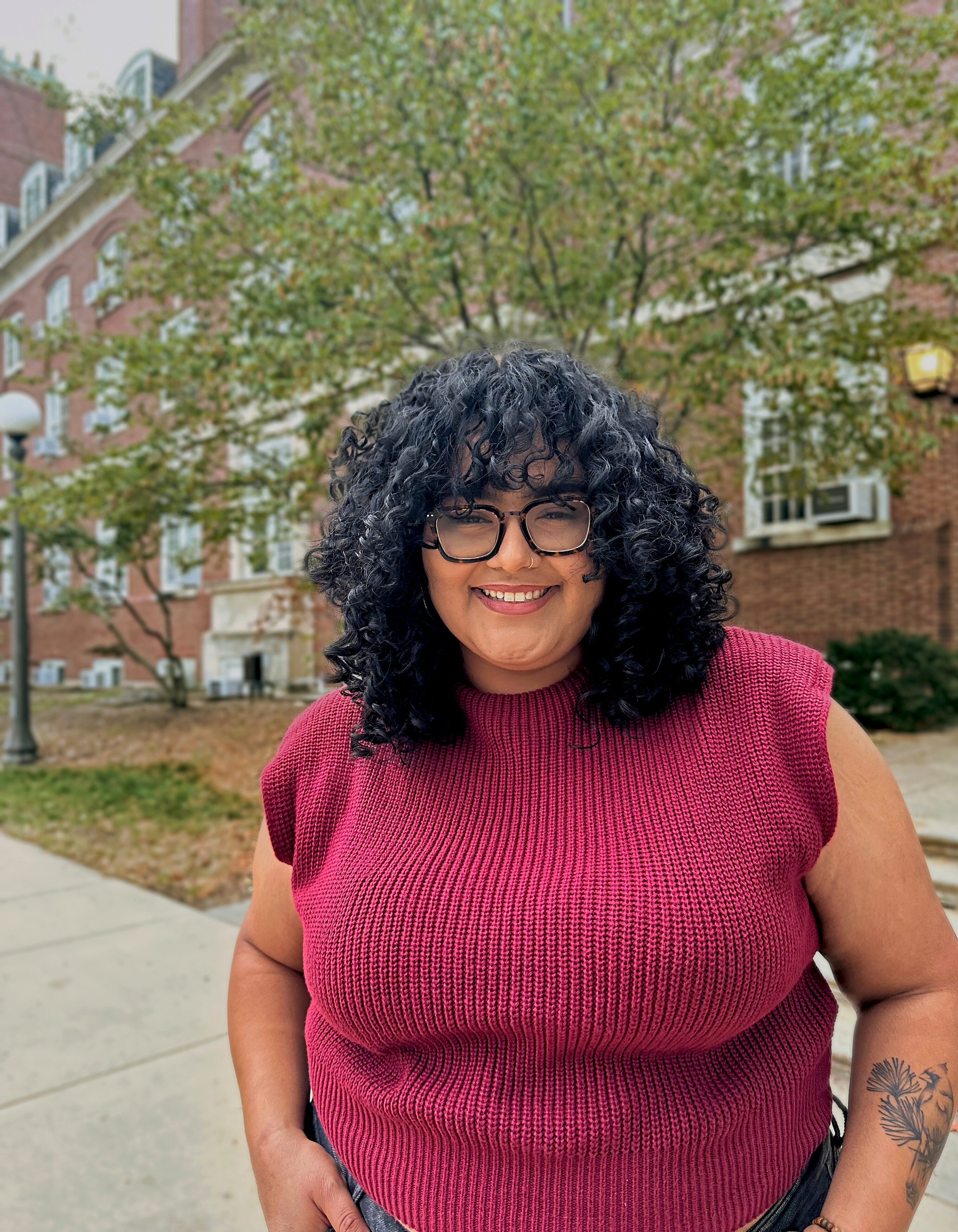
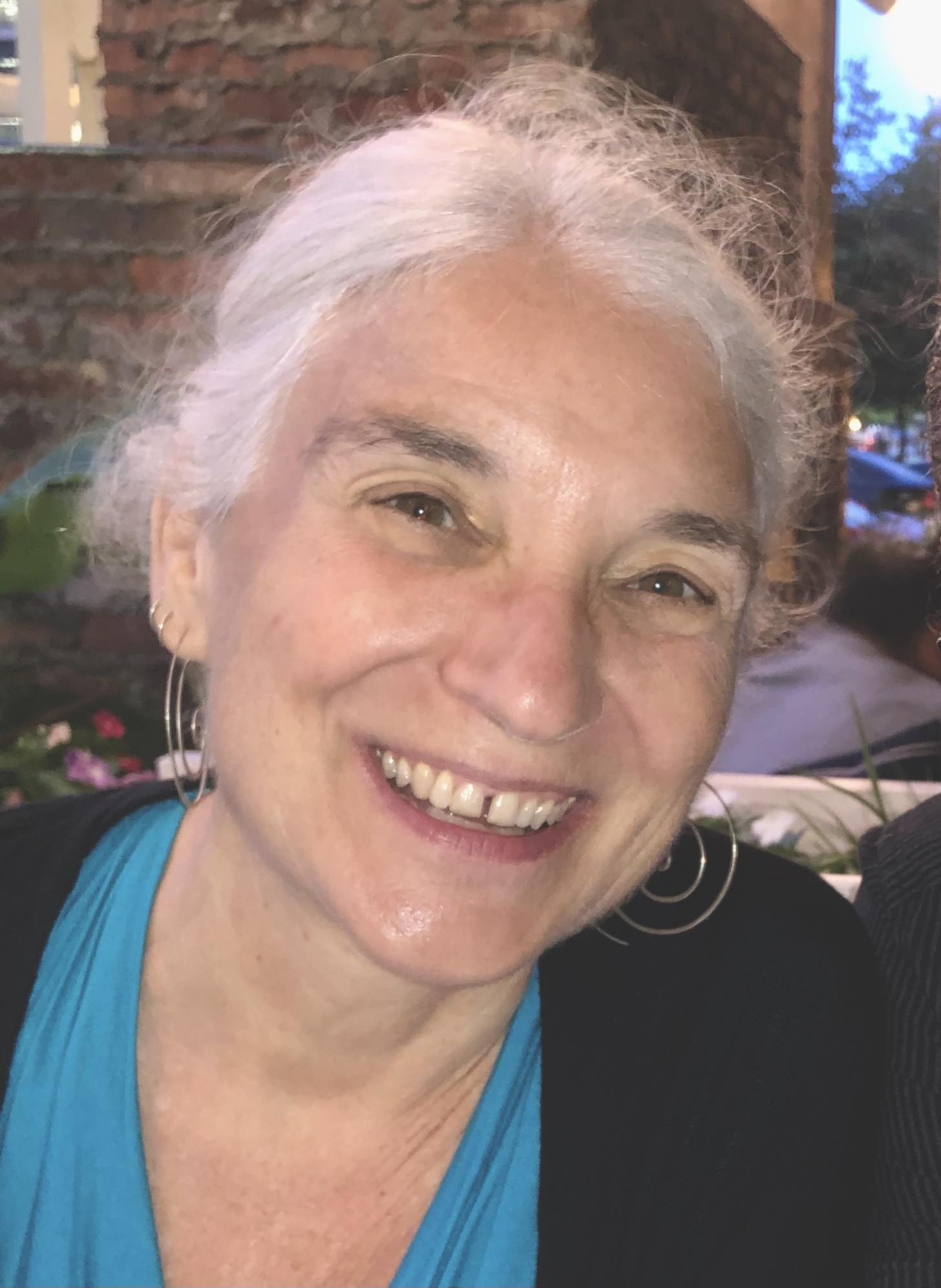
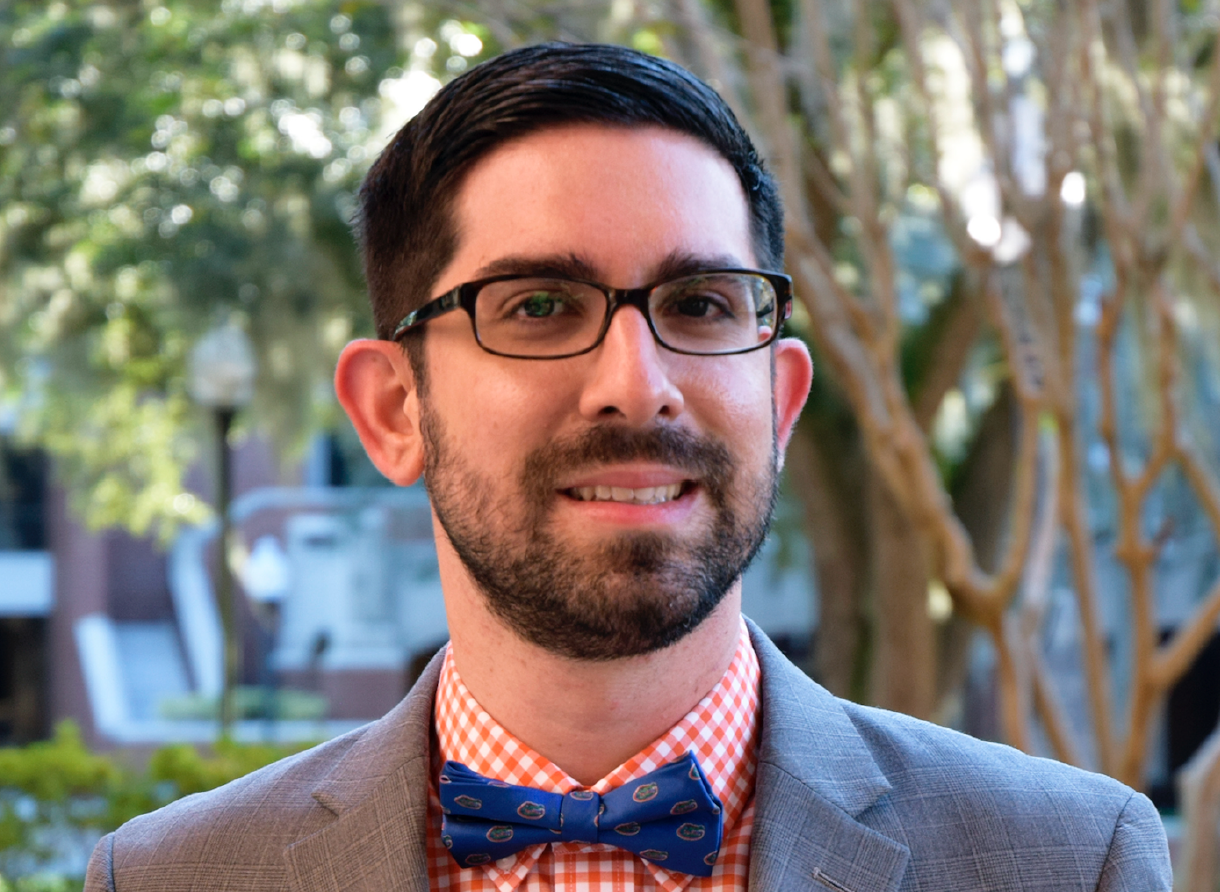
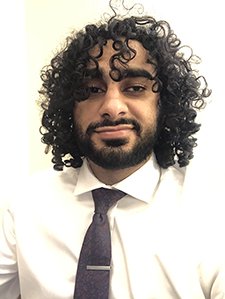
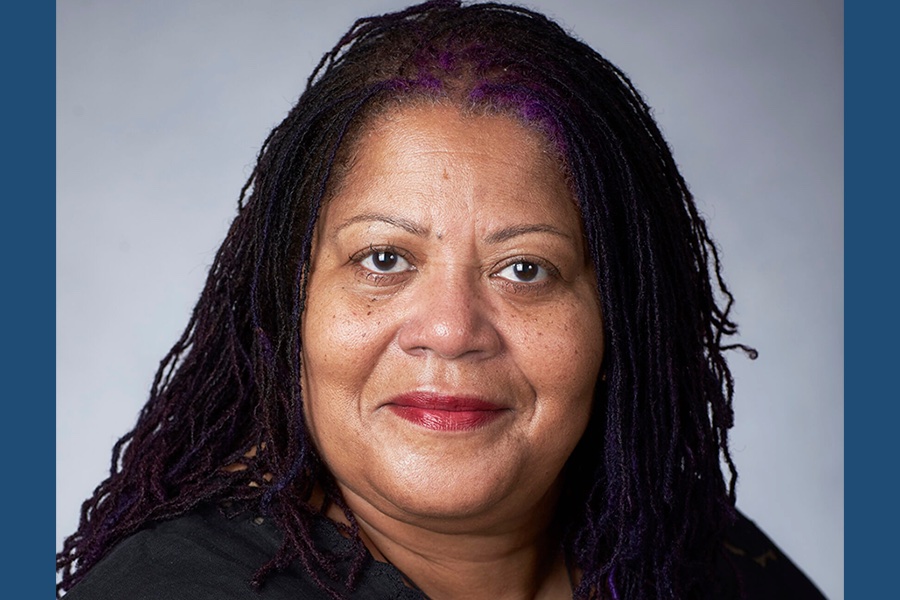 Sharon Tettegah, PhD
Sharon Tettegah, PhD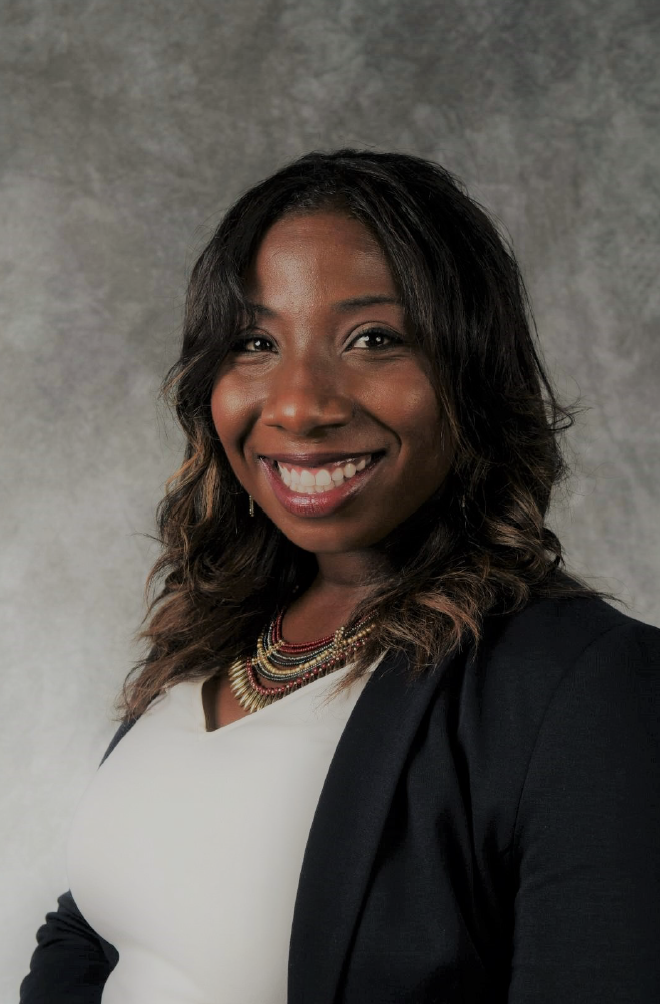
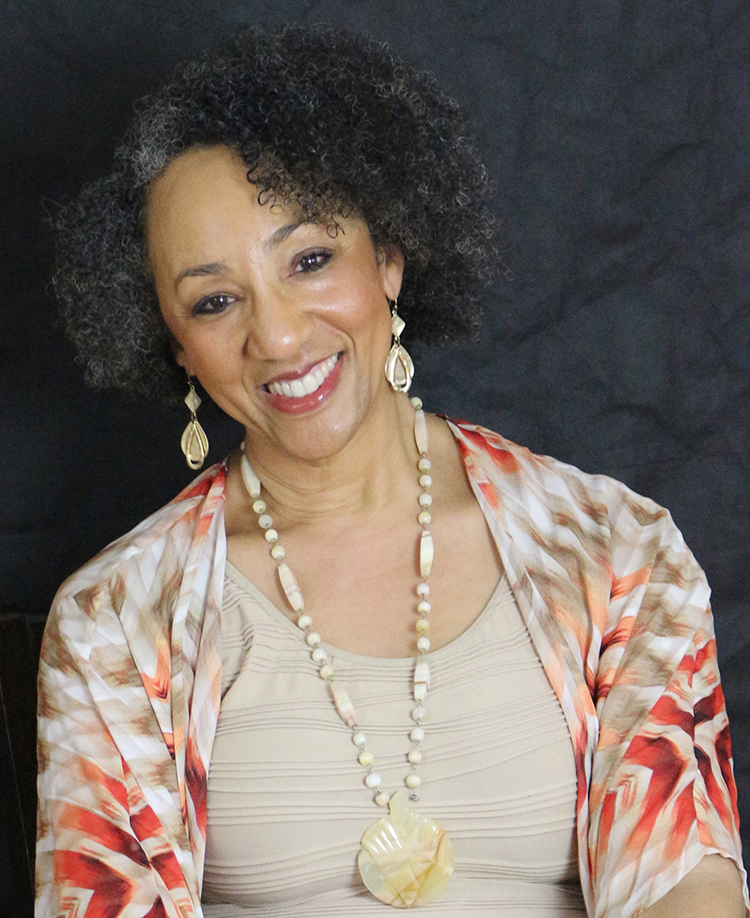
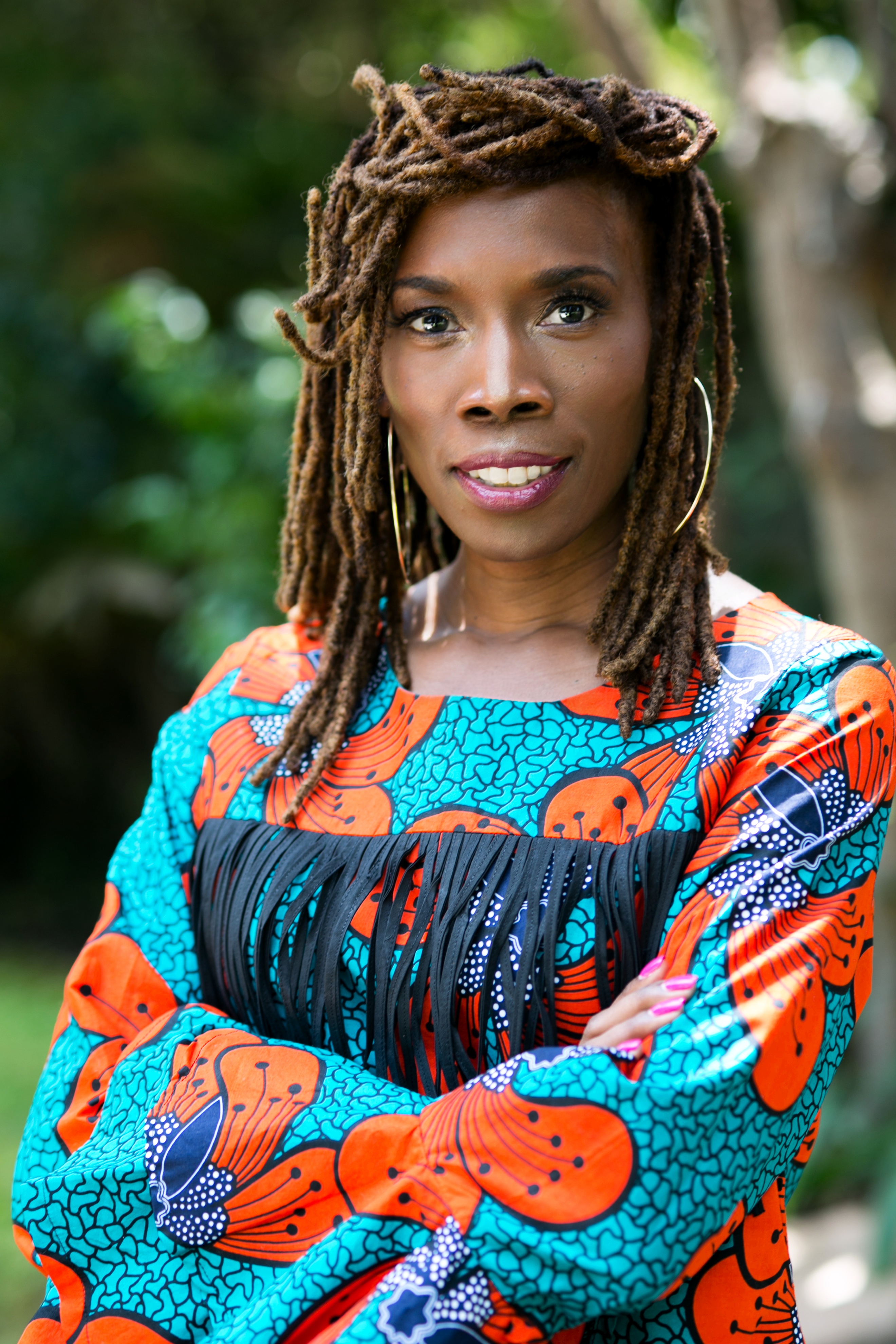
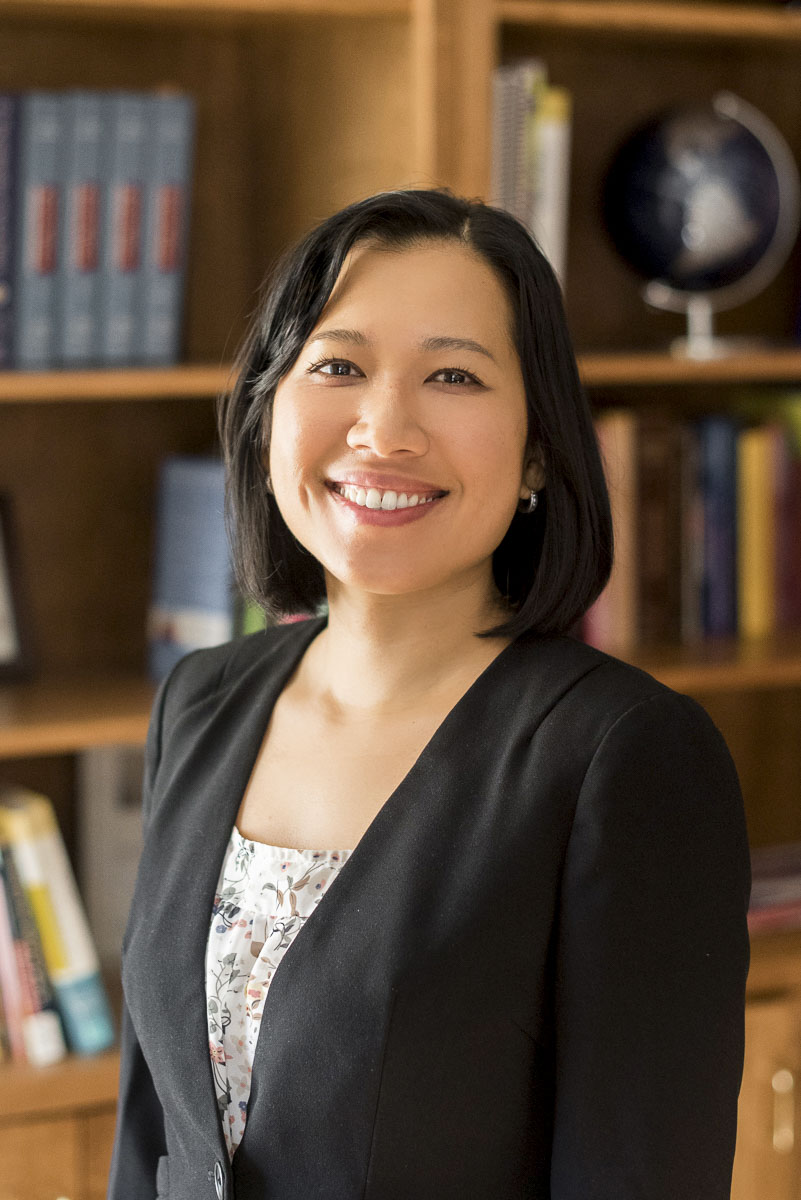
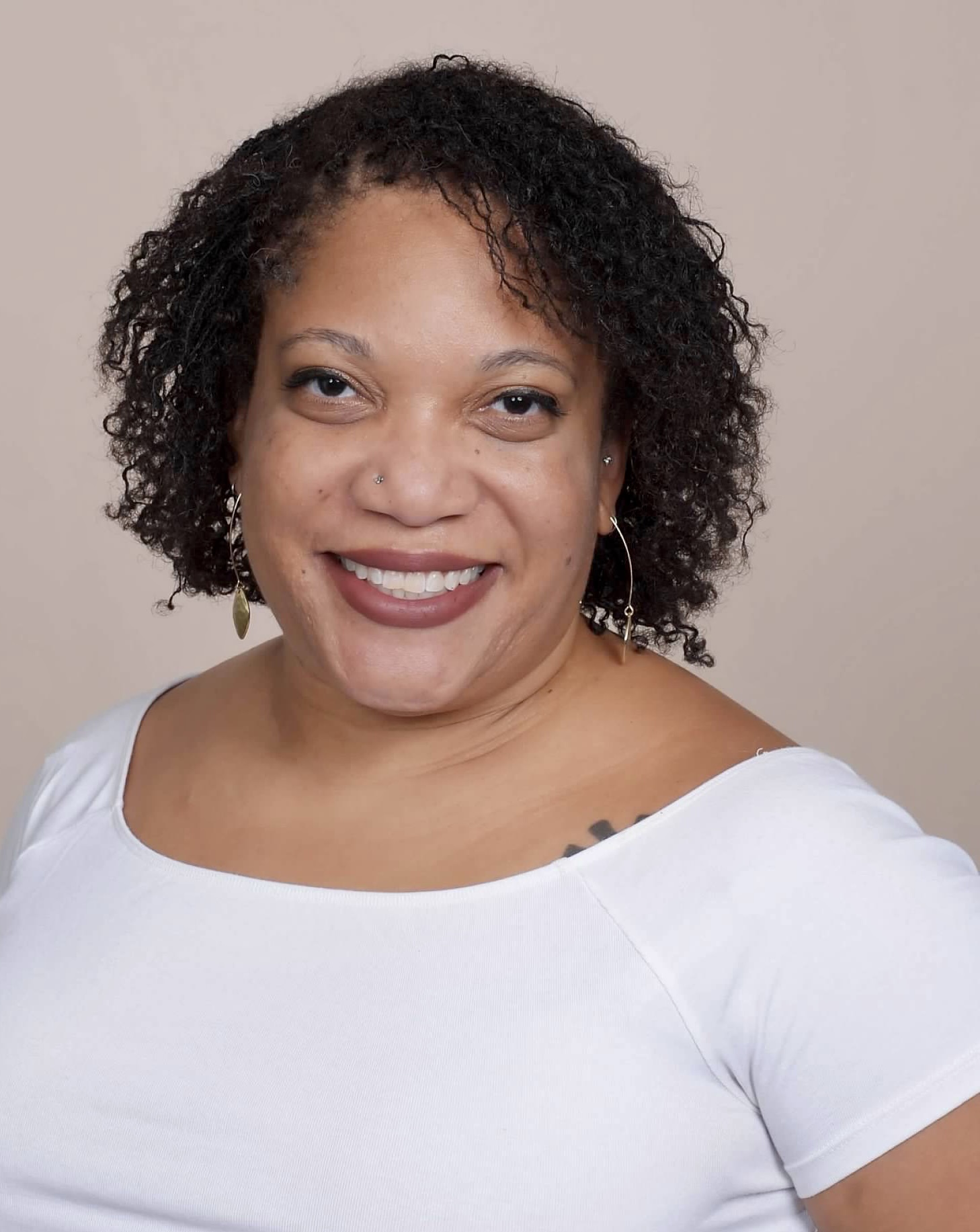
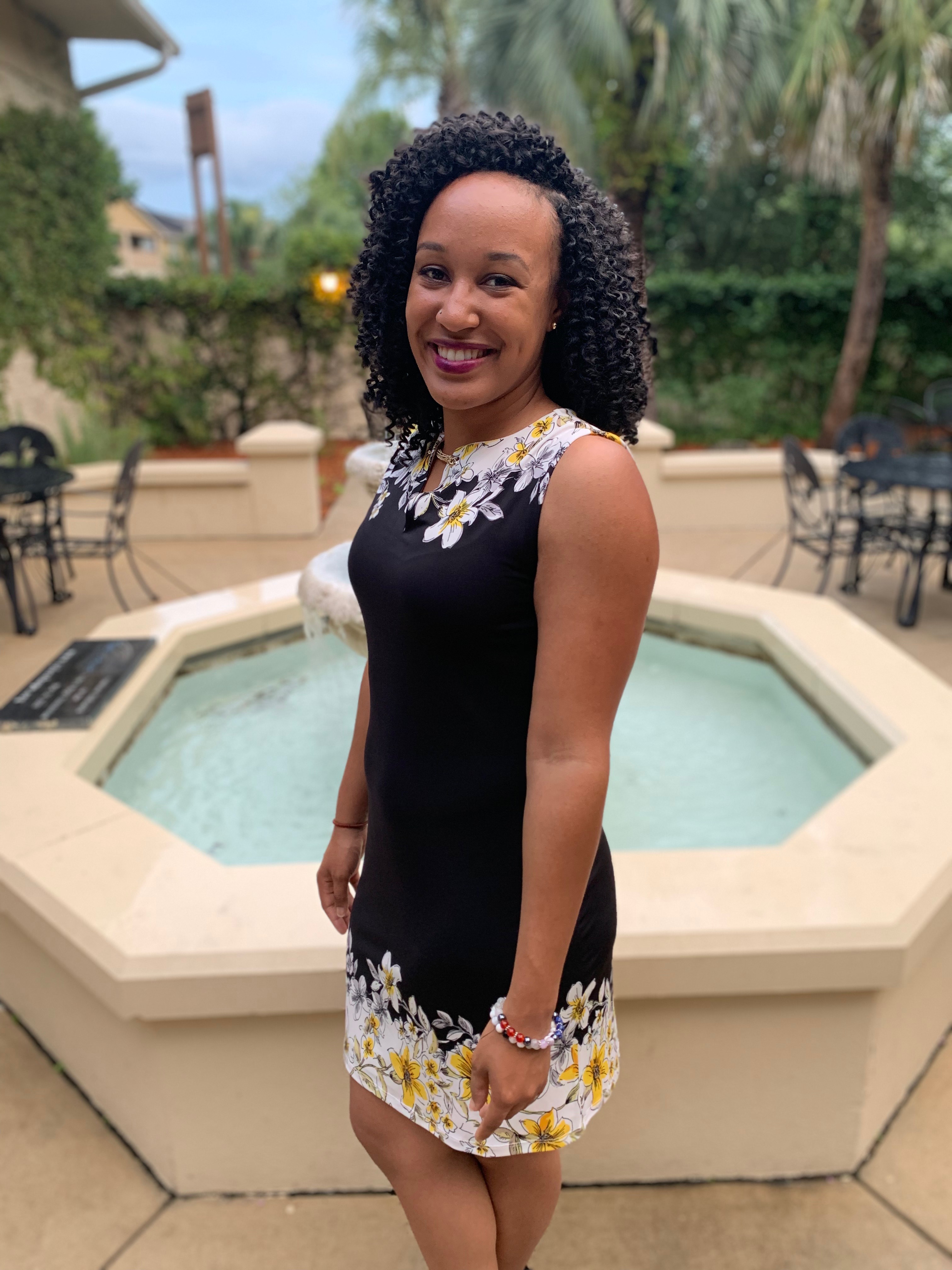 Victoria McNeil-Young, PhD
Victoria McNeil-Young, PhD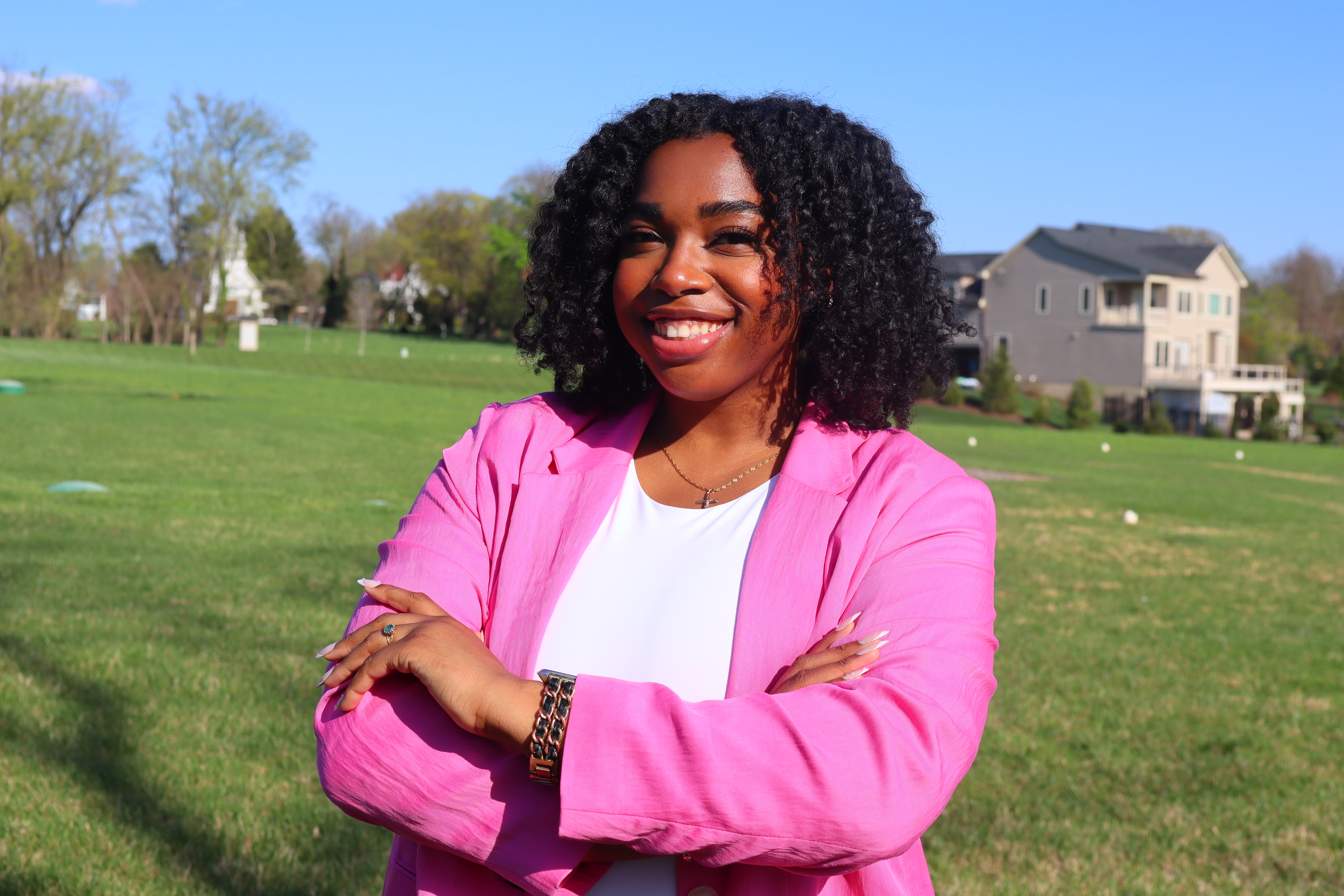 Whitney Clarke, B.A.
Whitney Clarke, B.A.